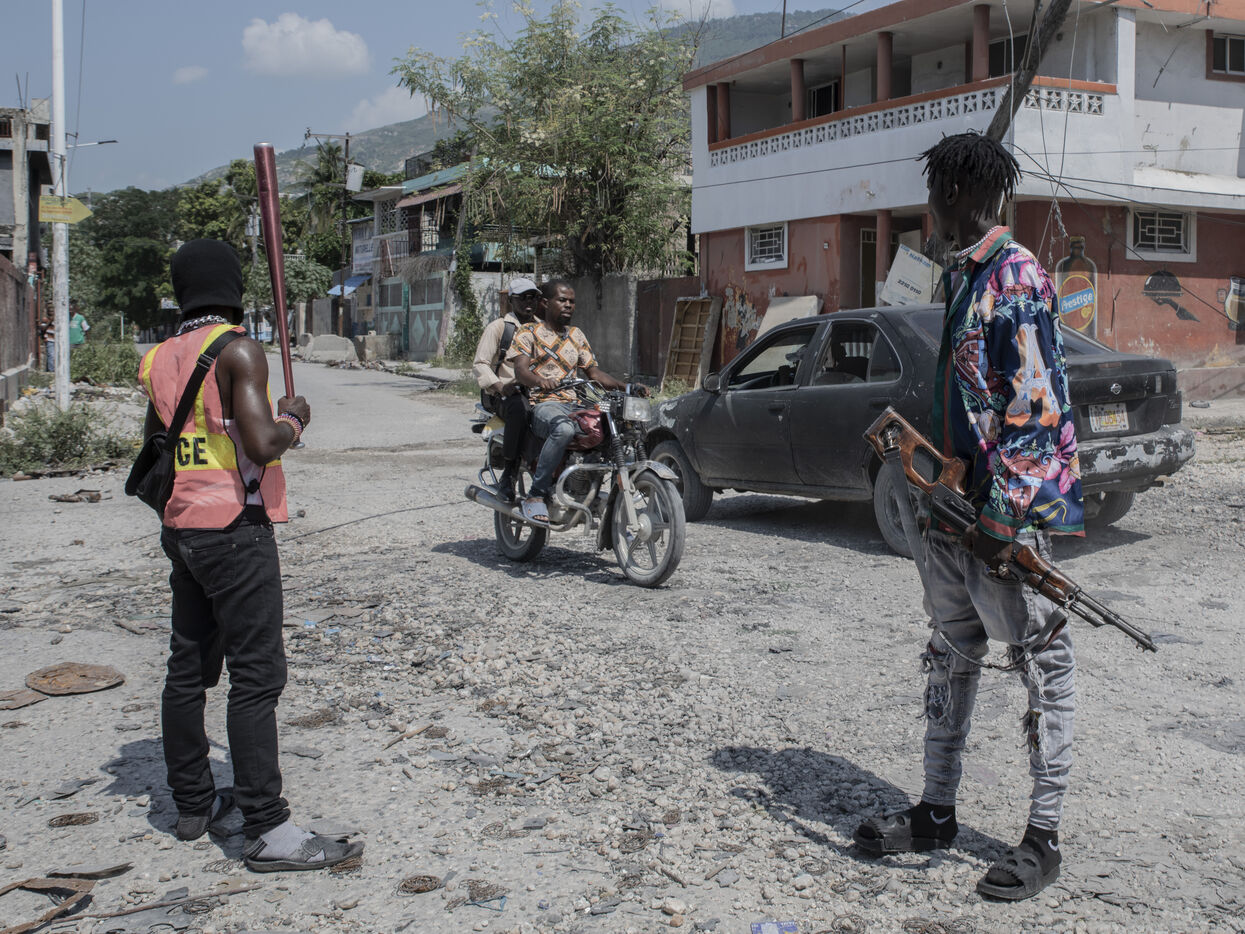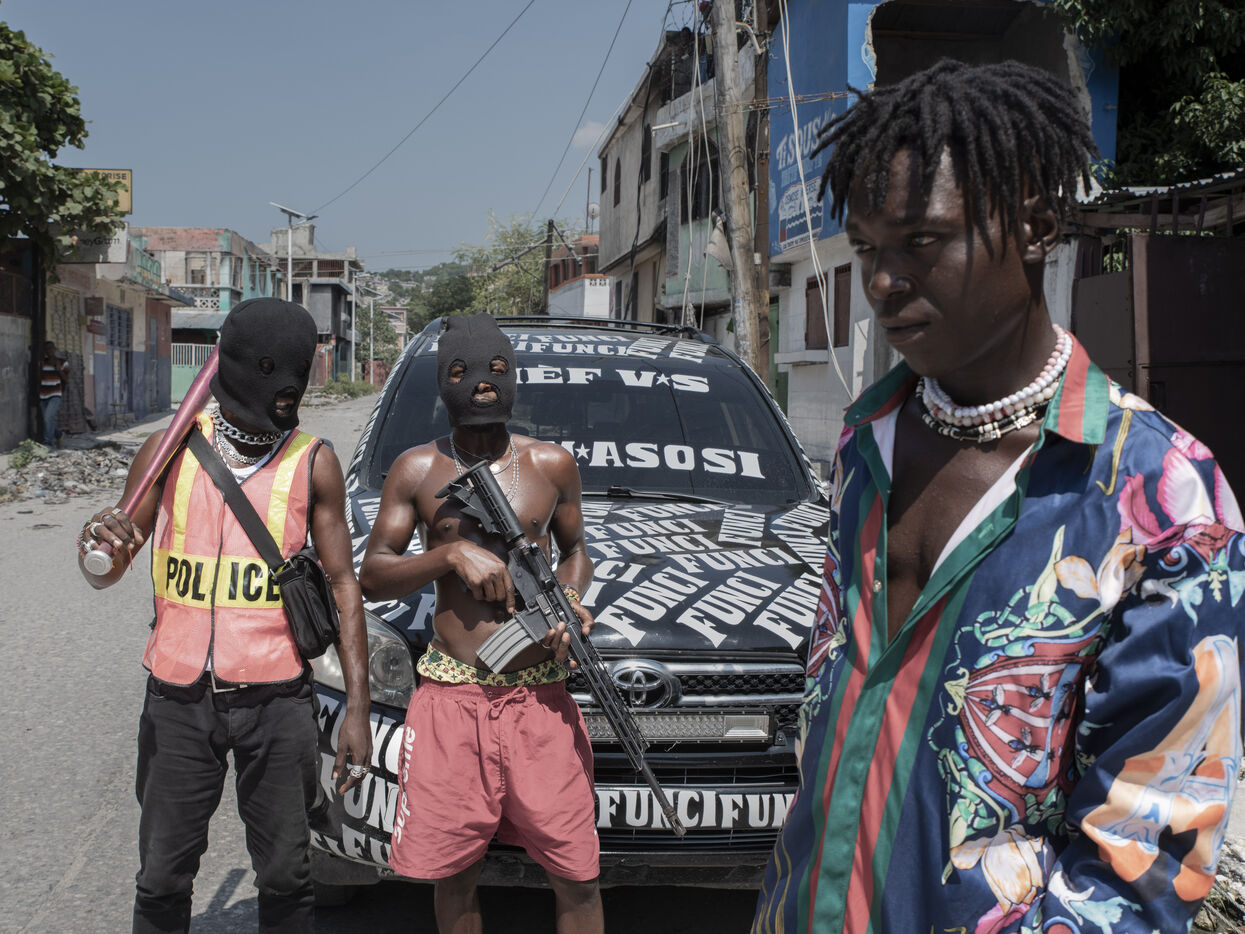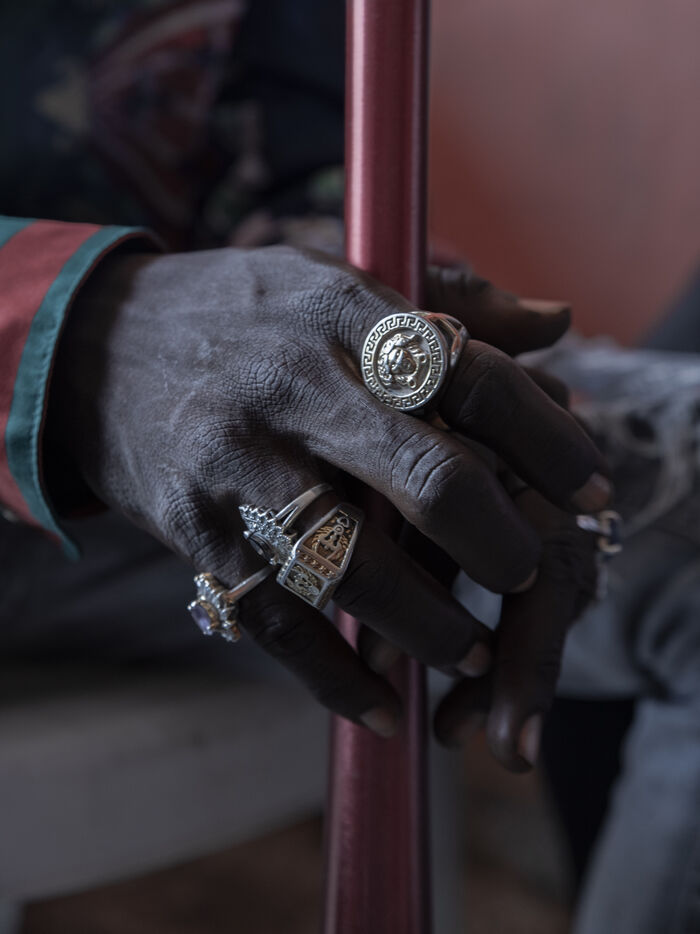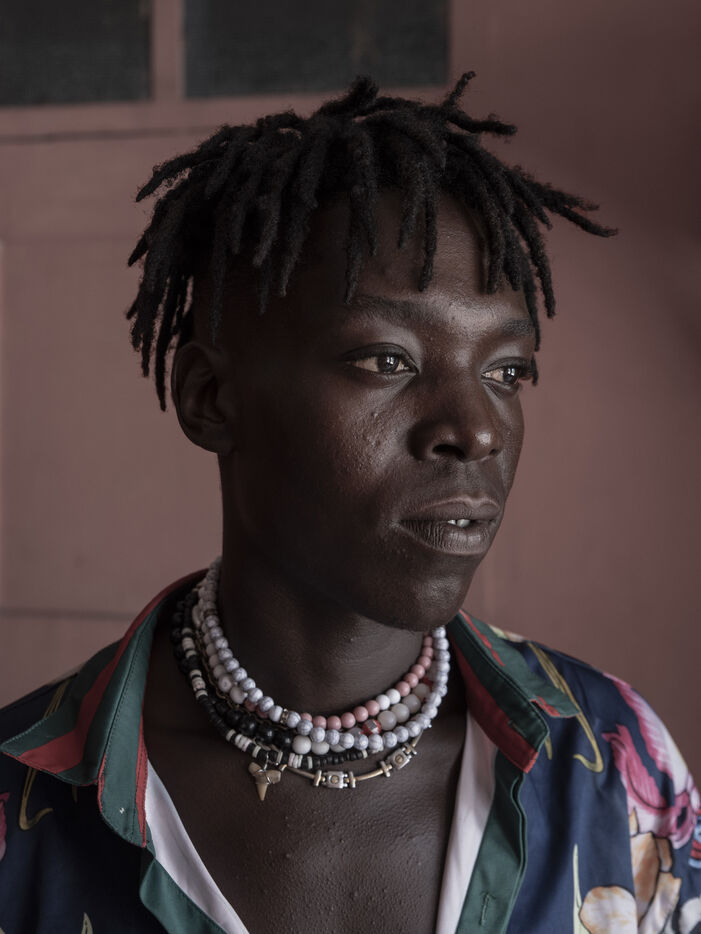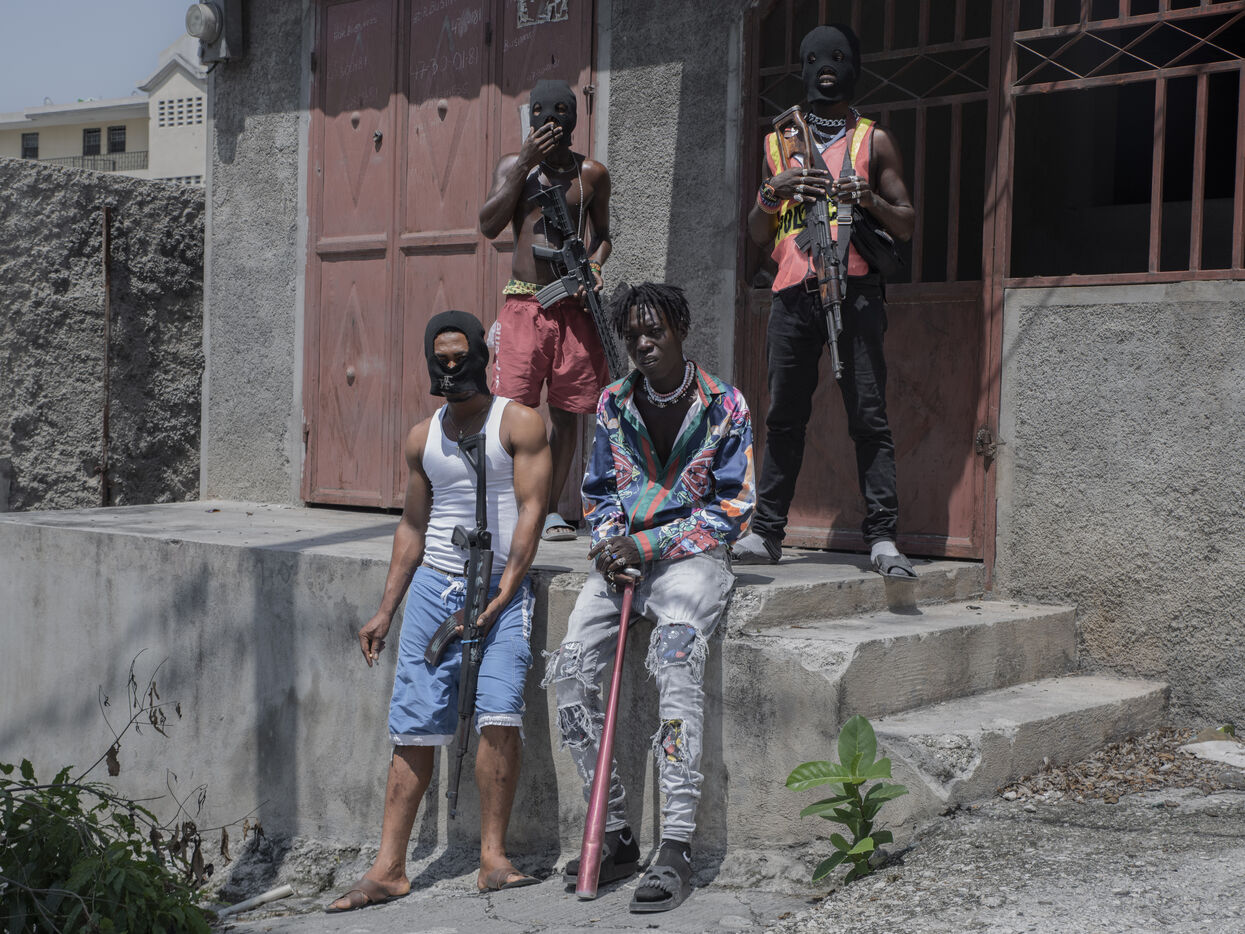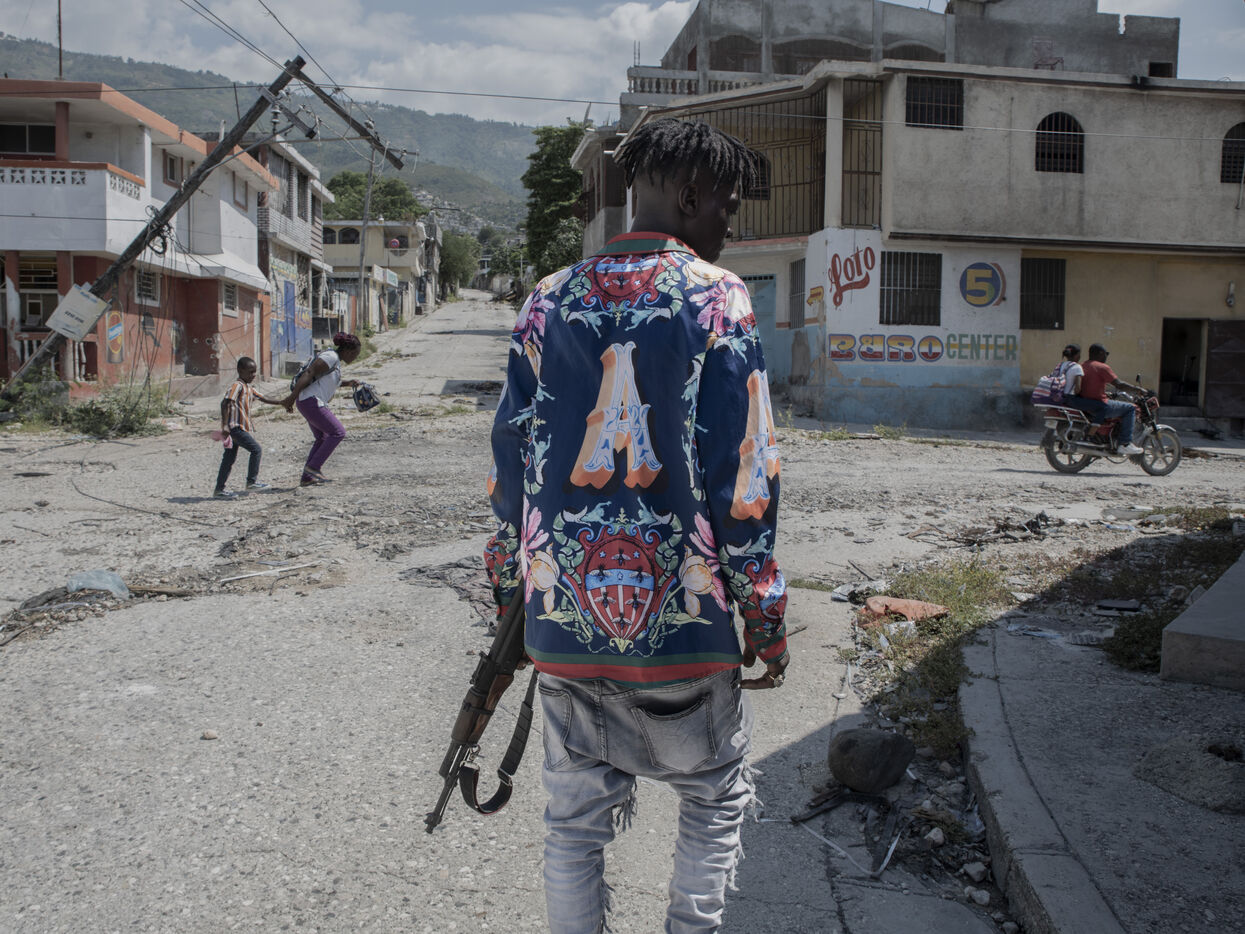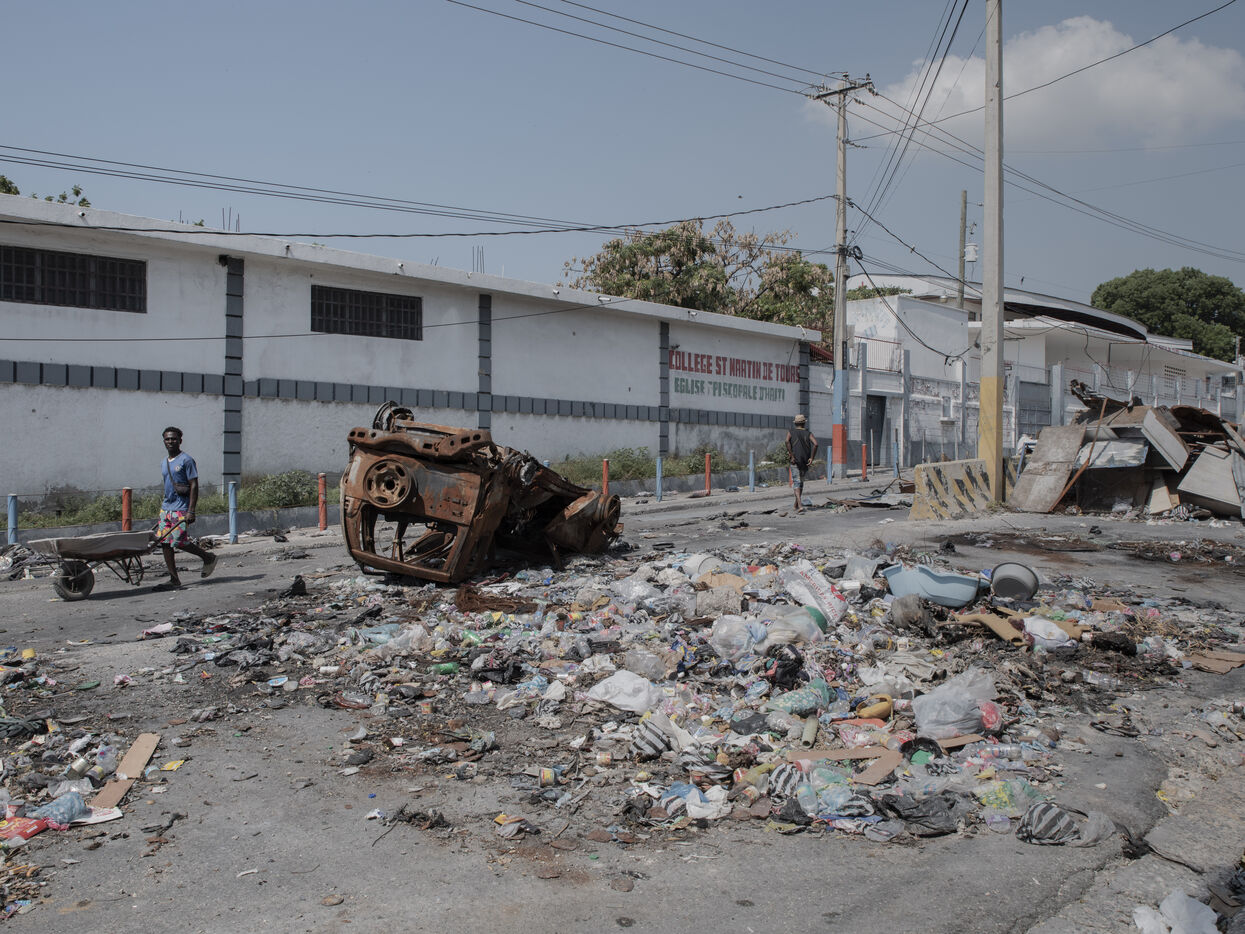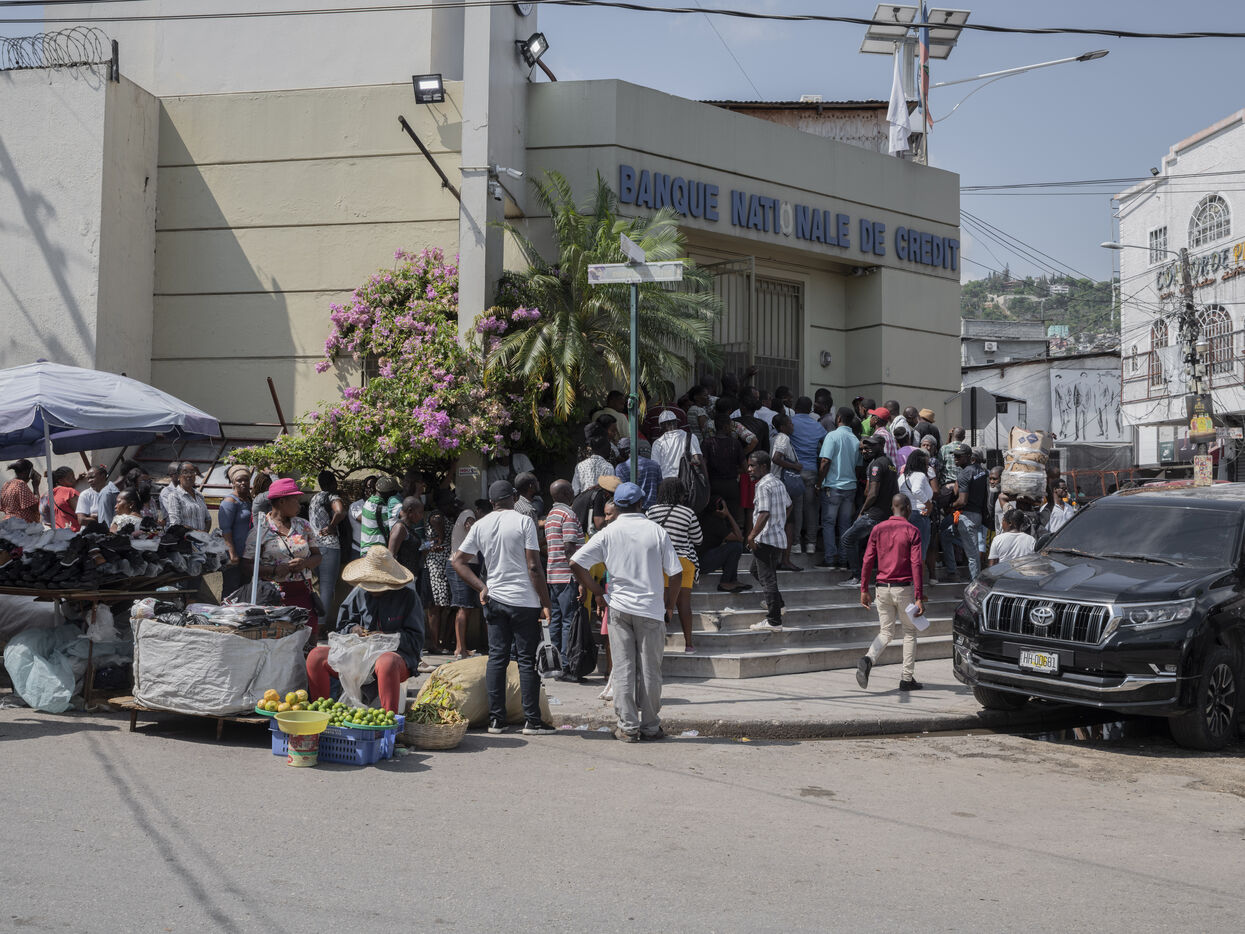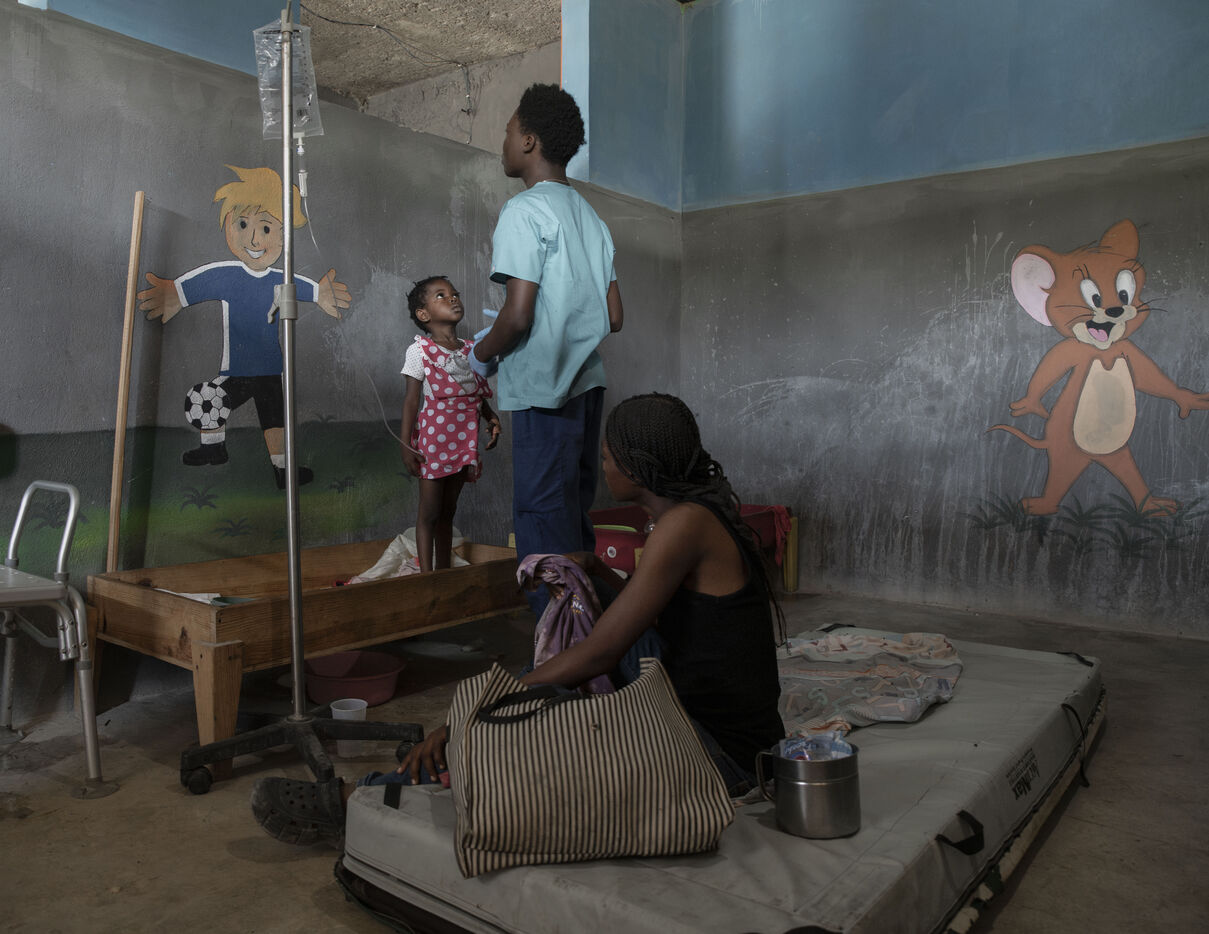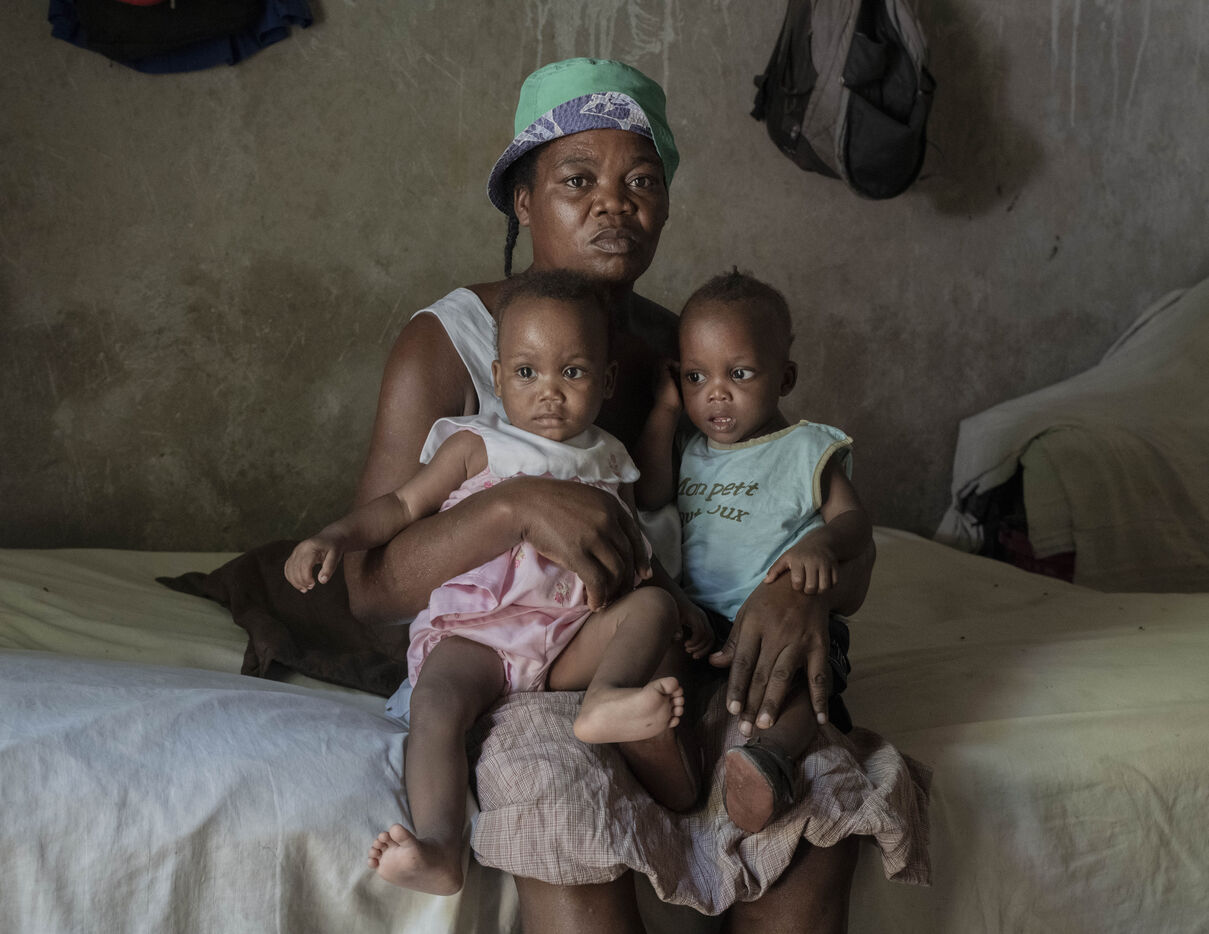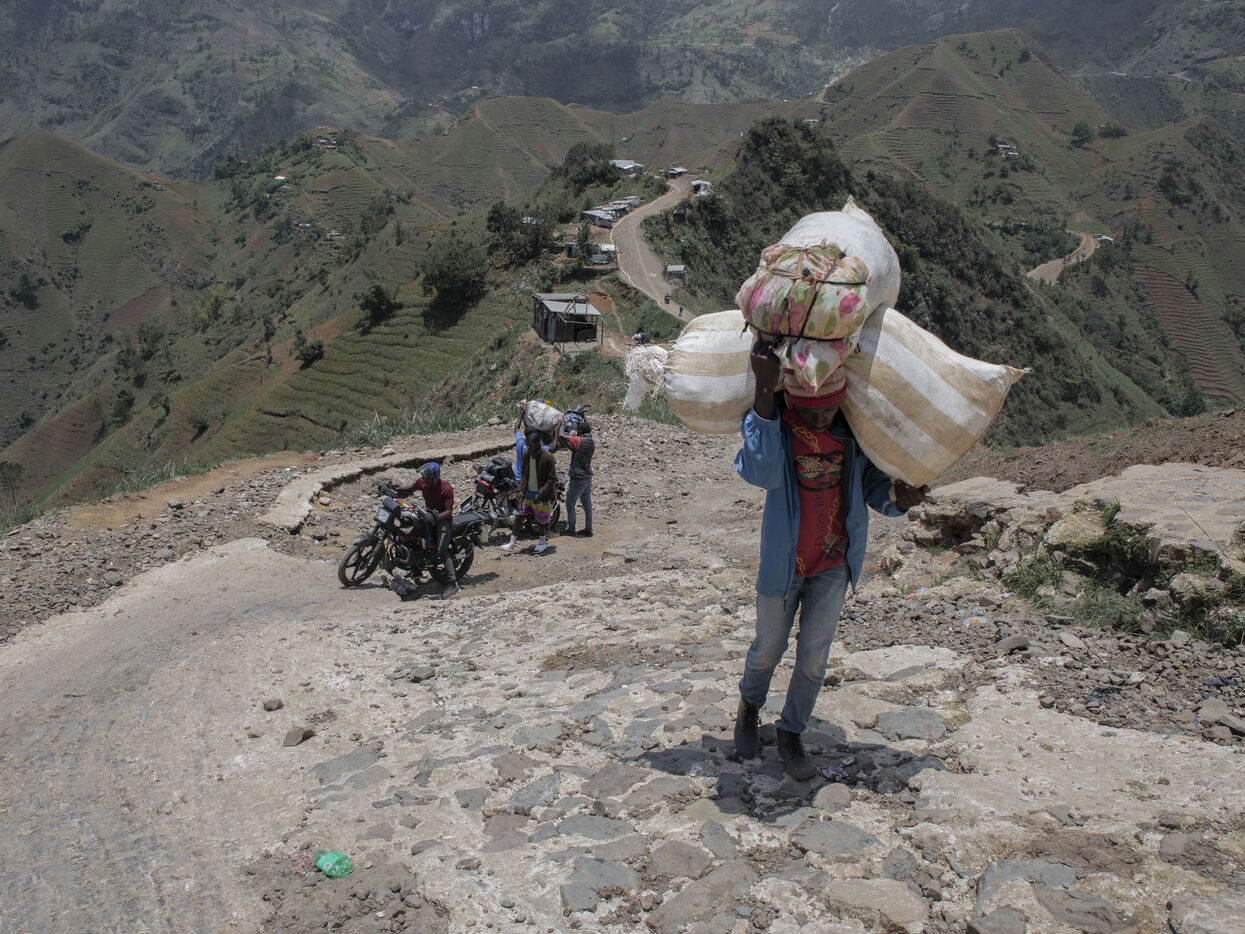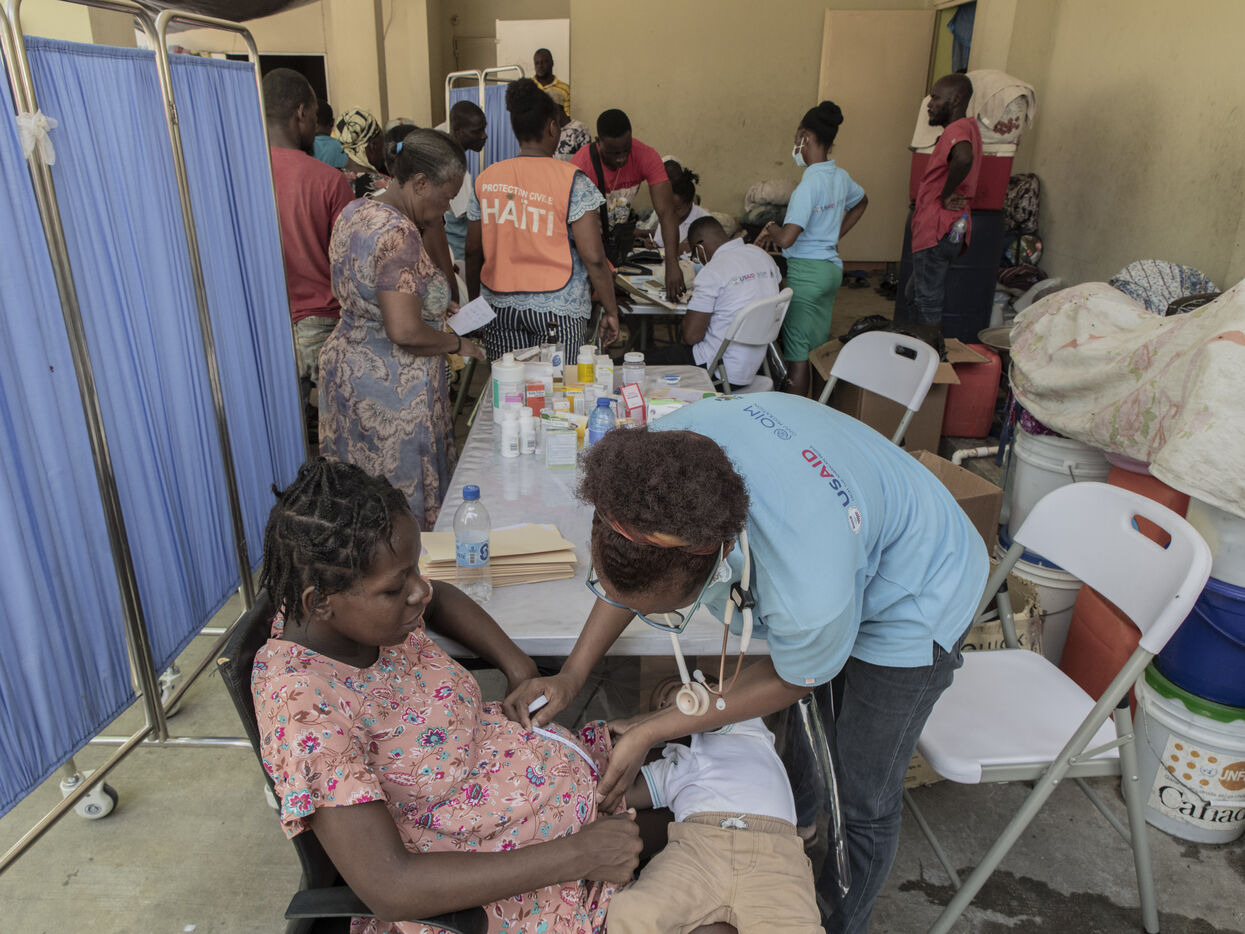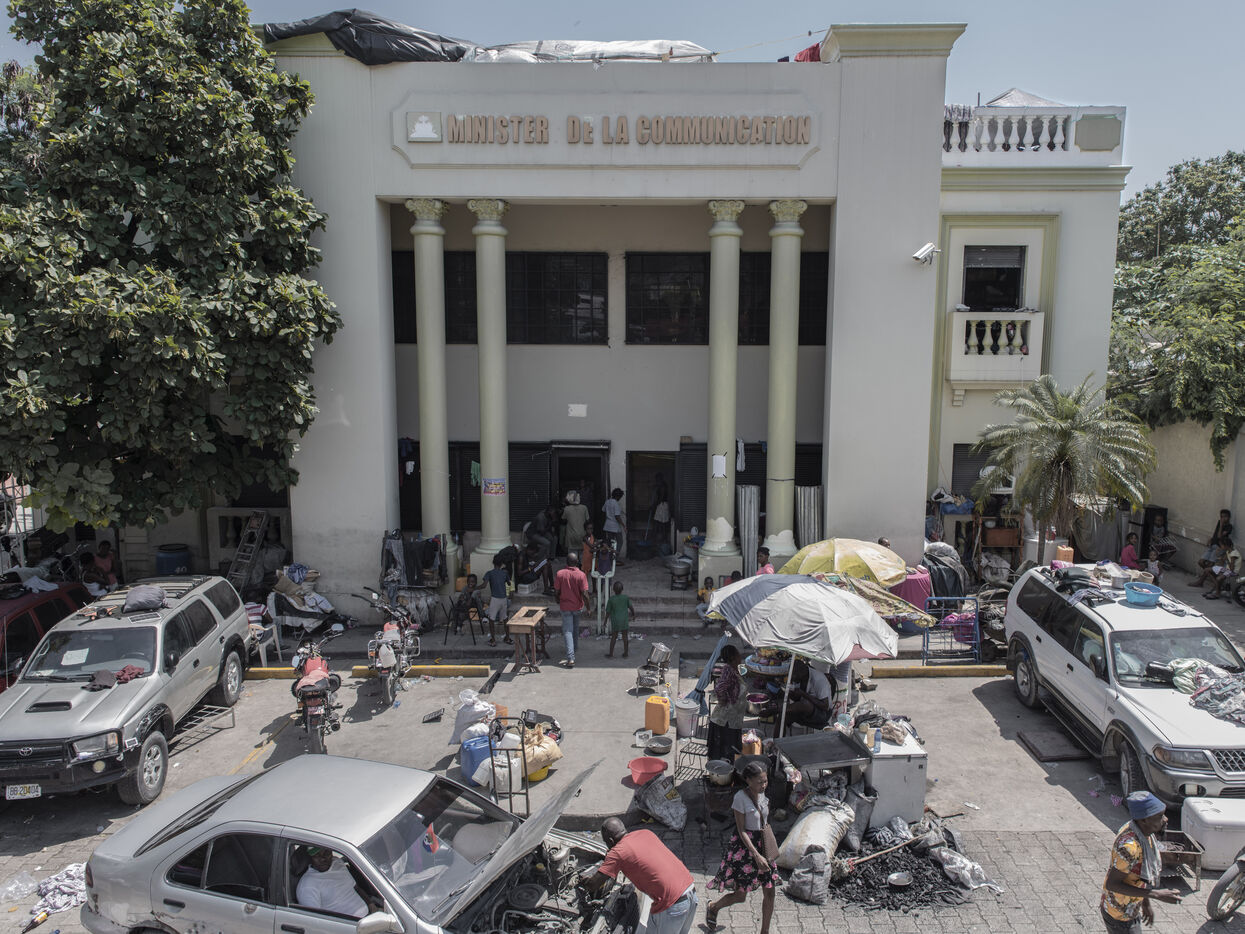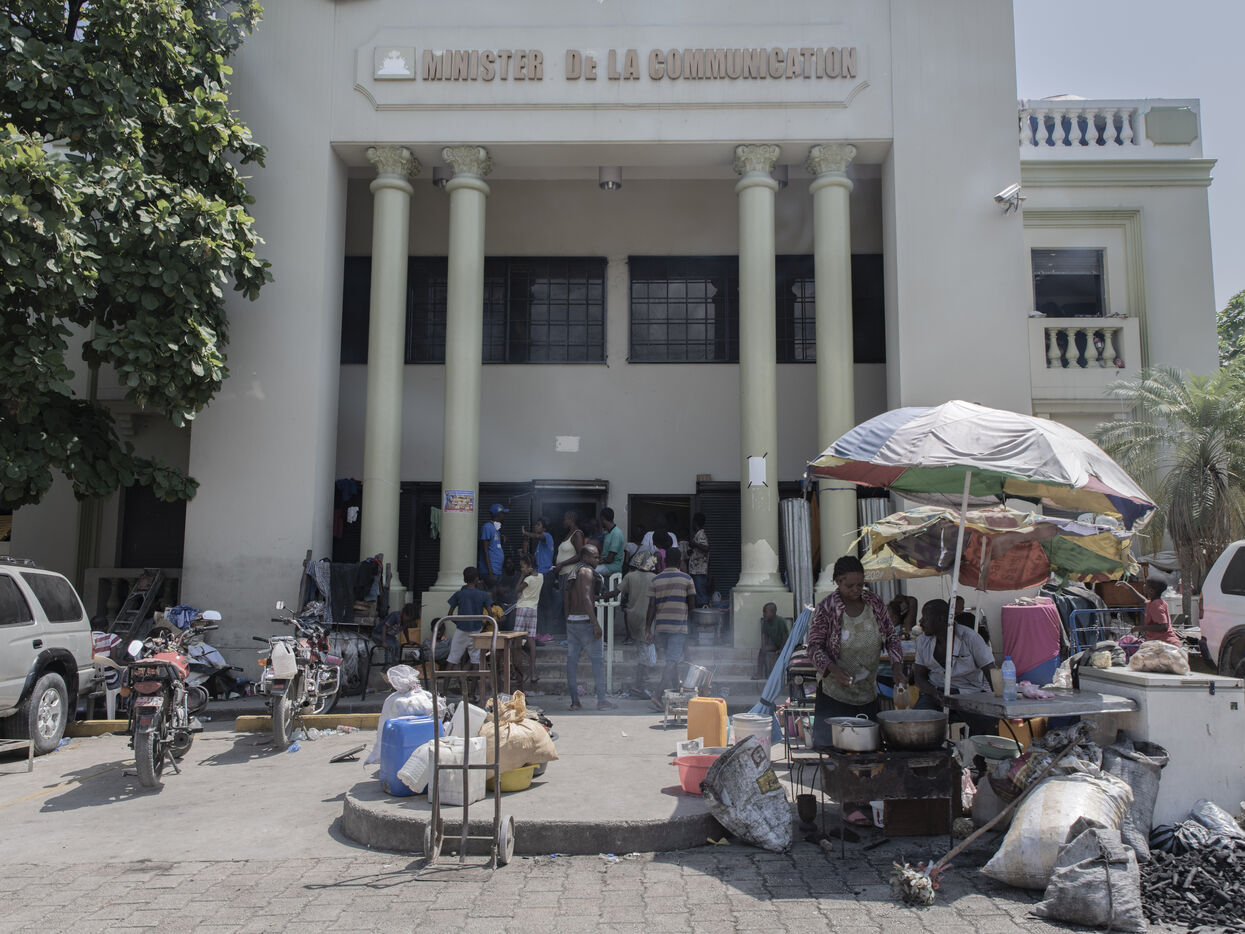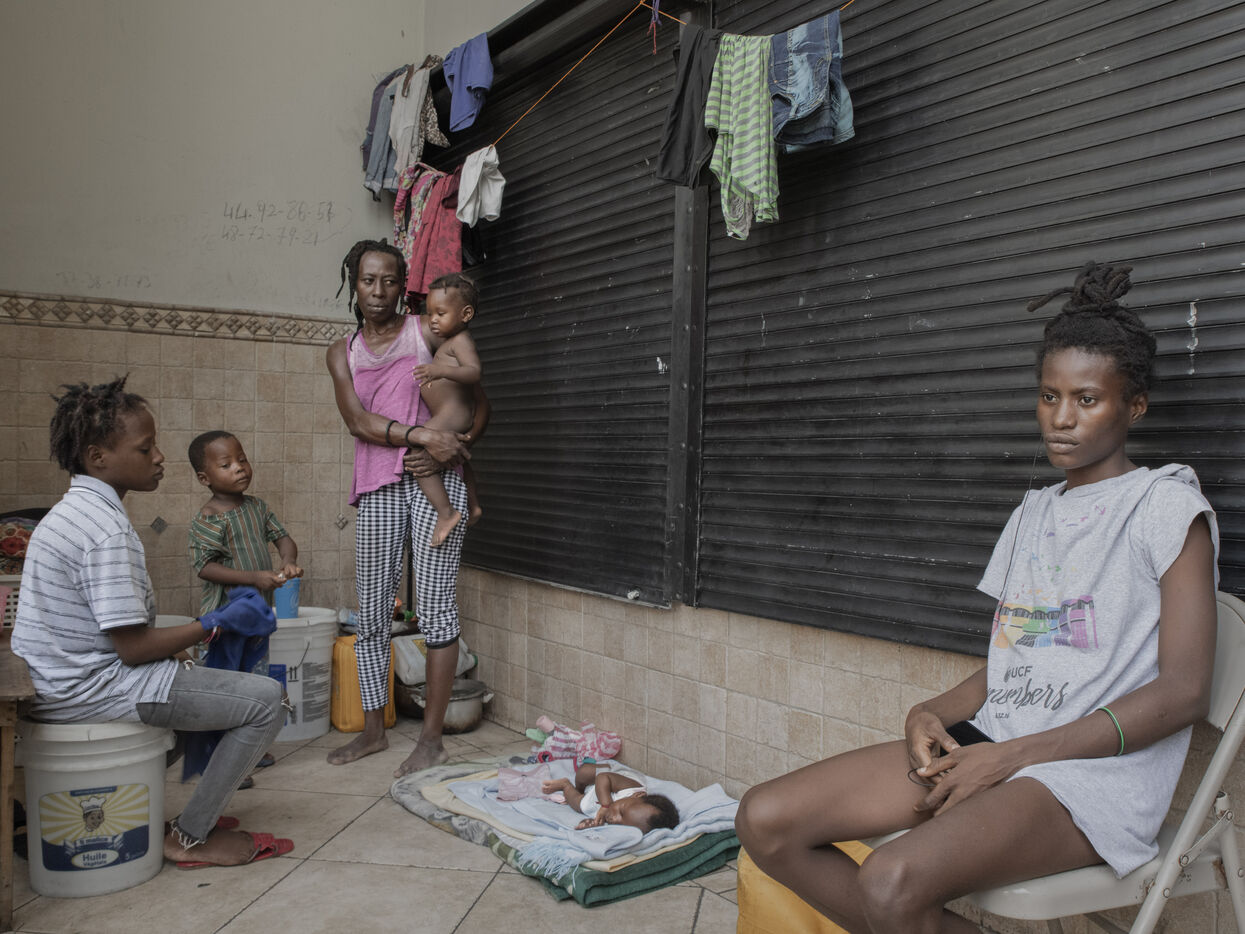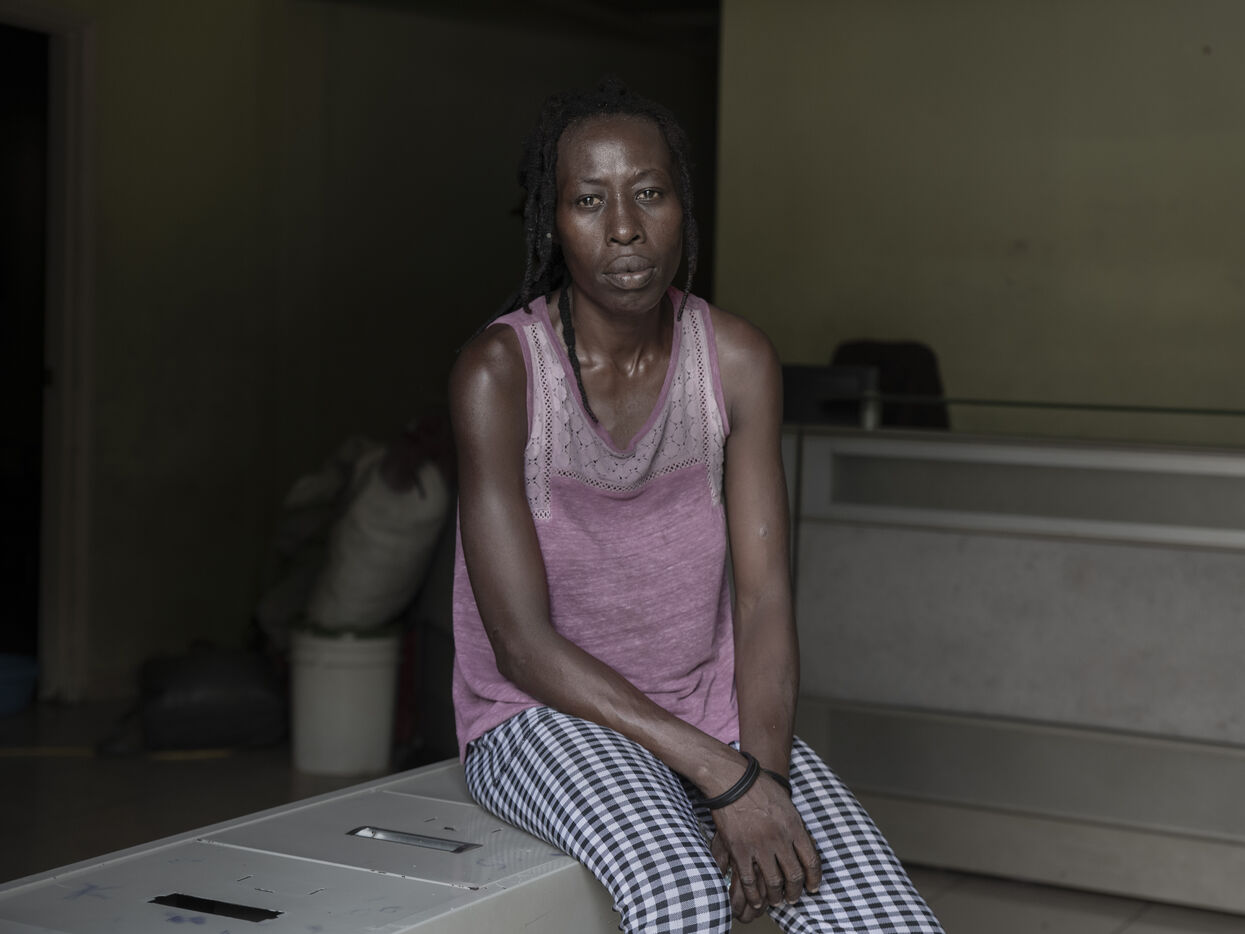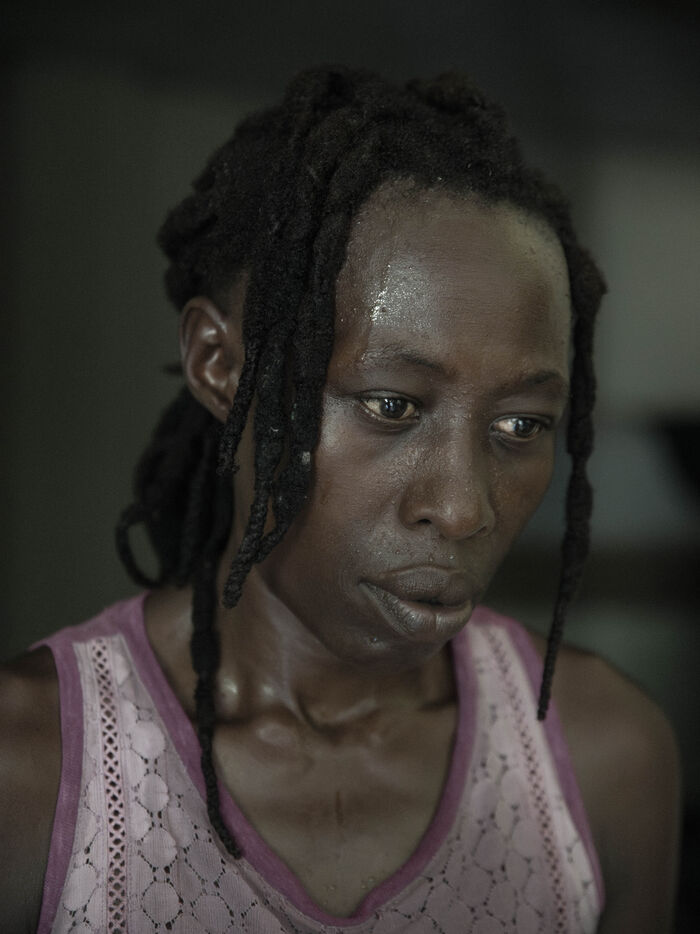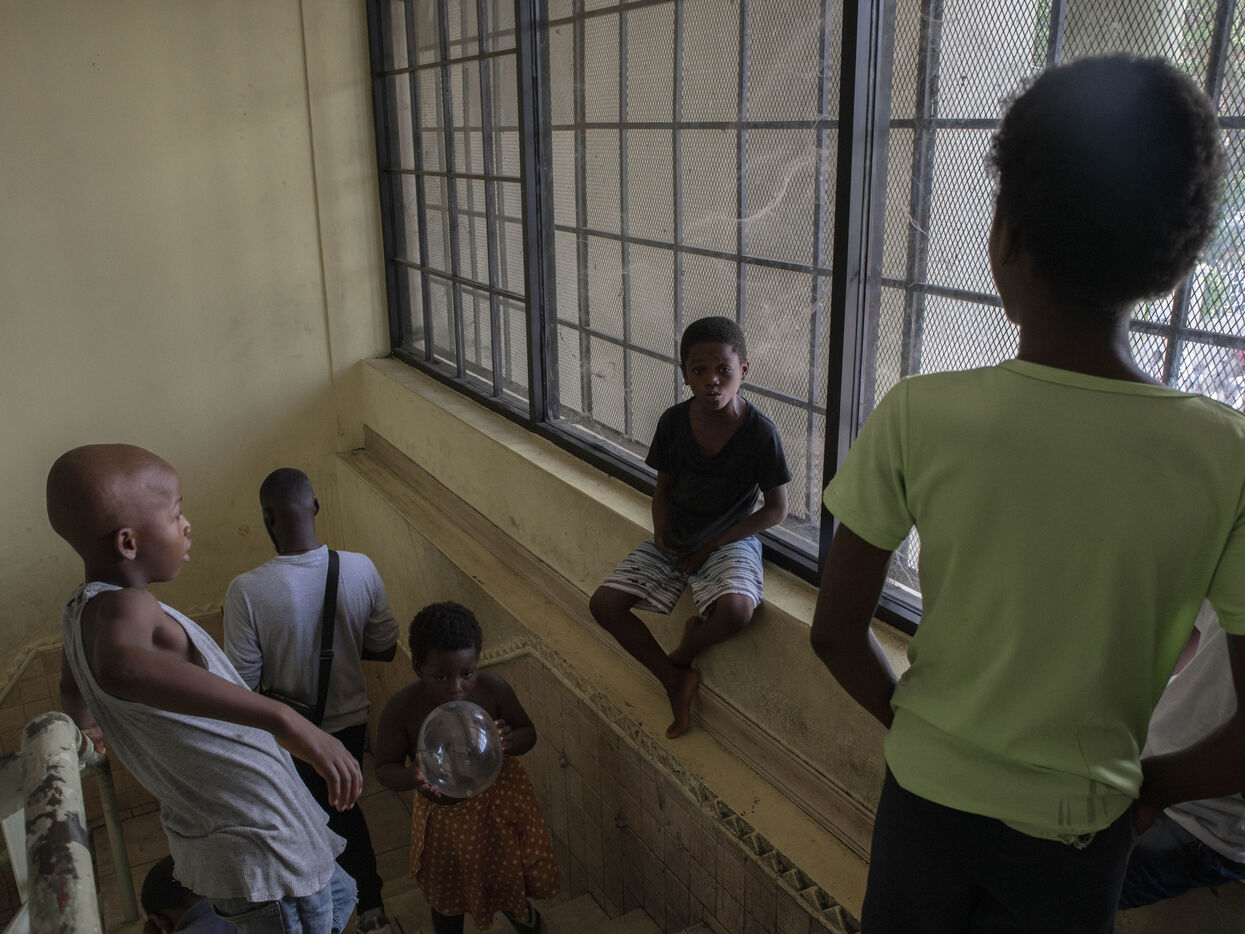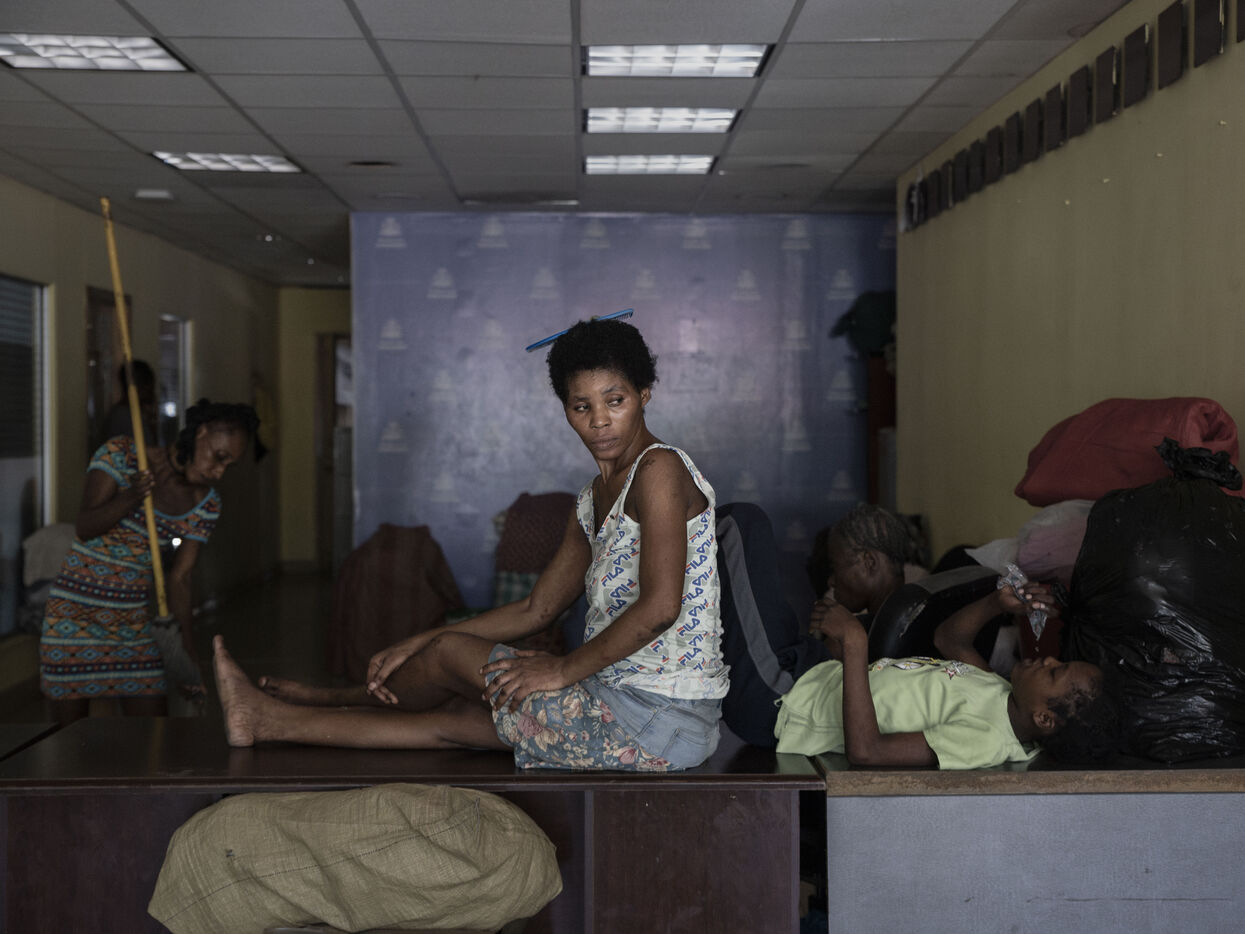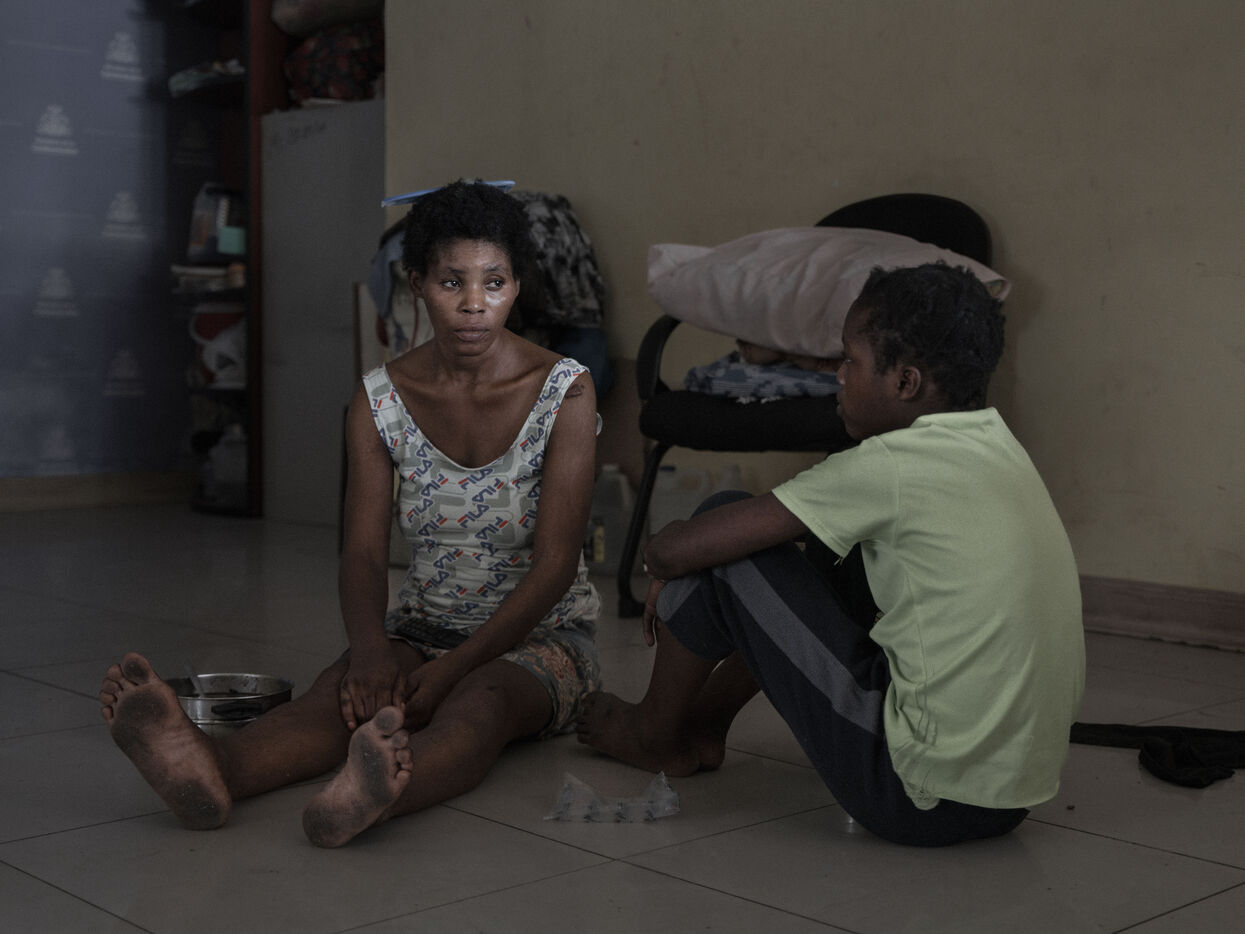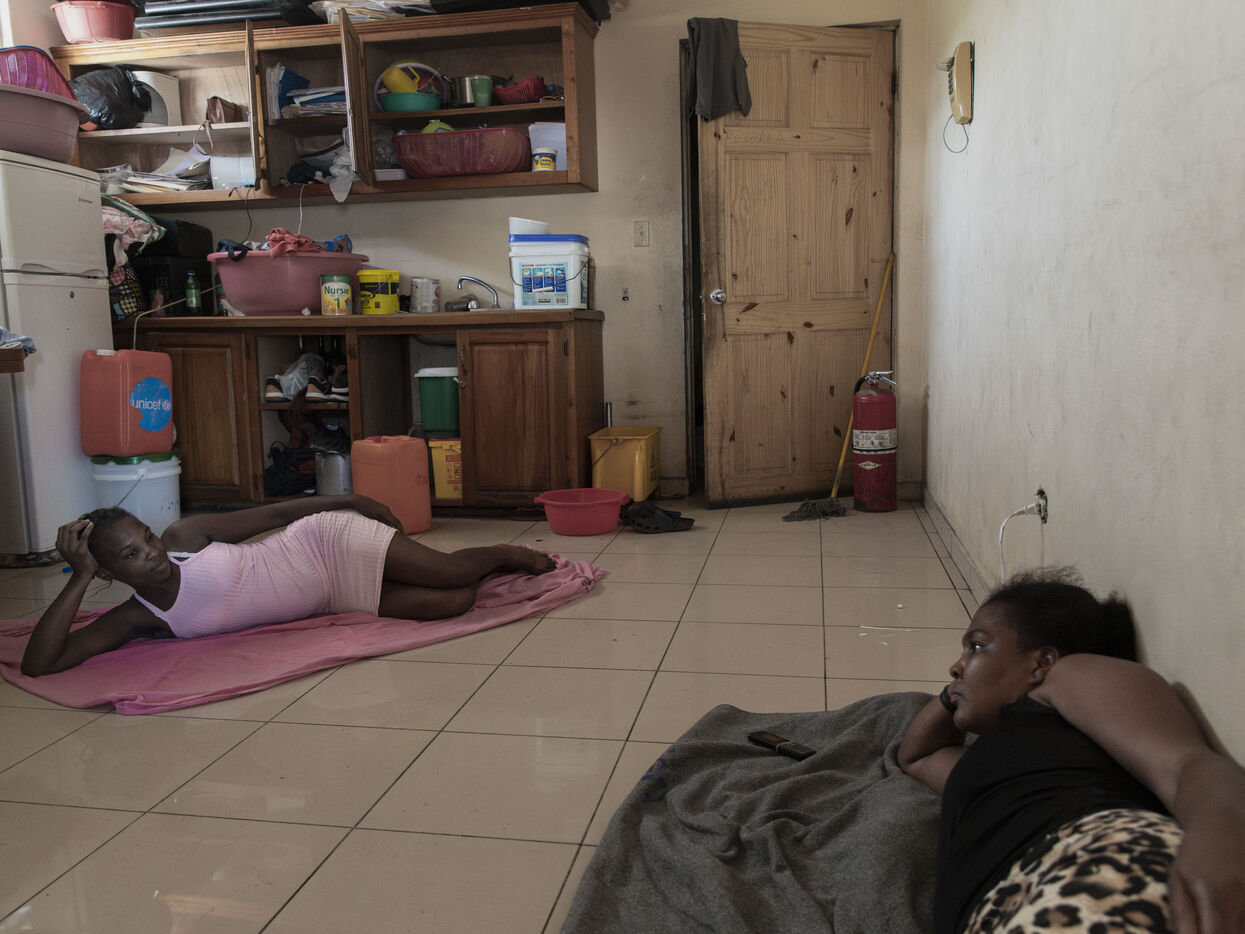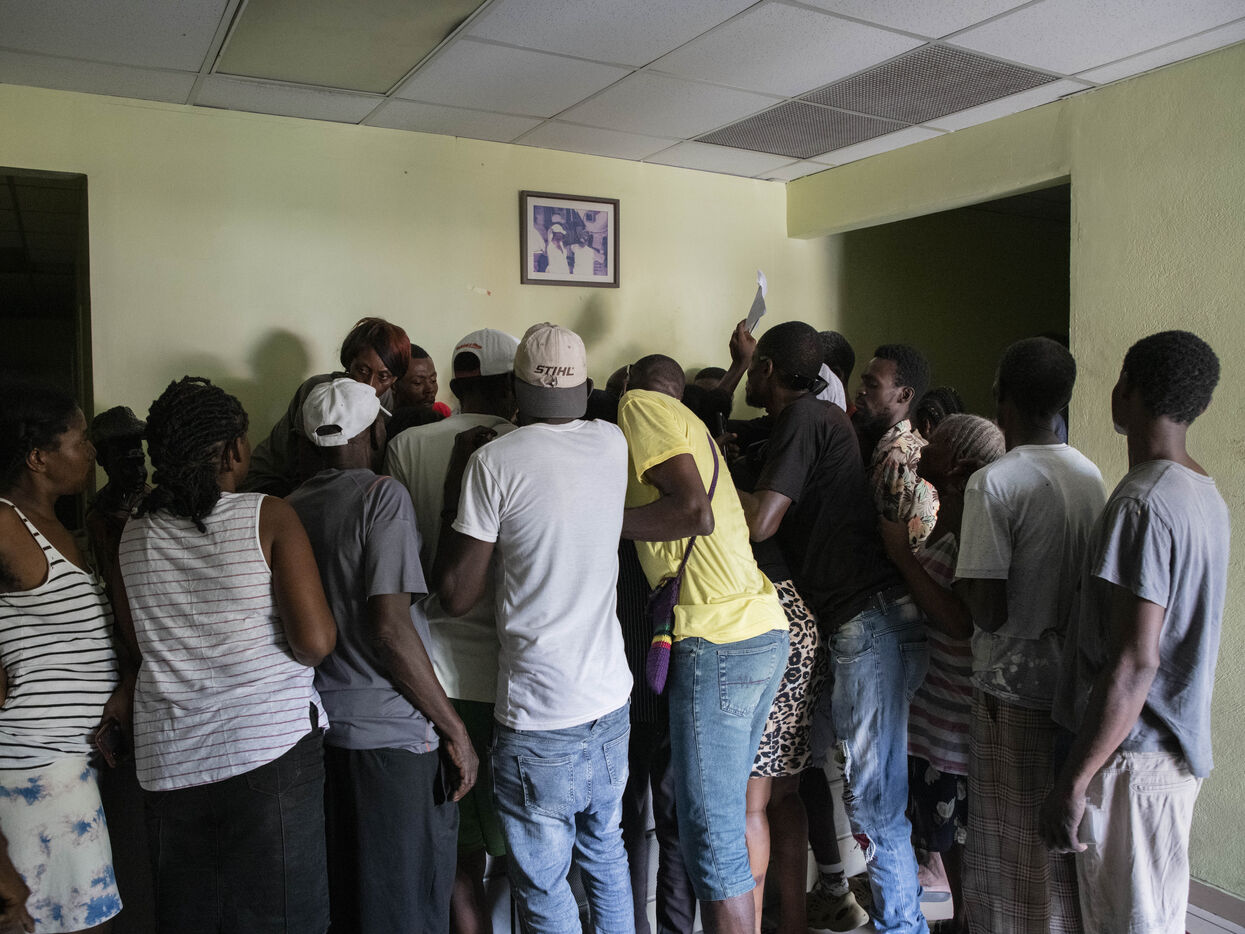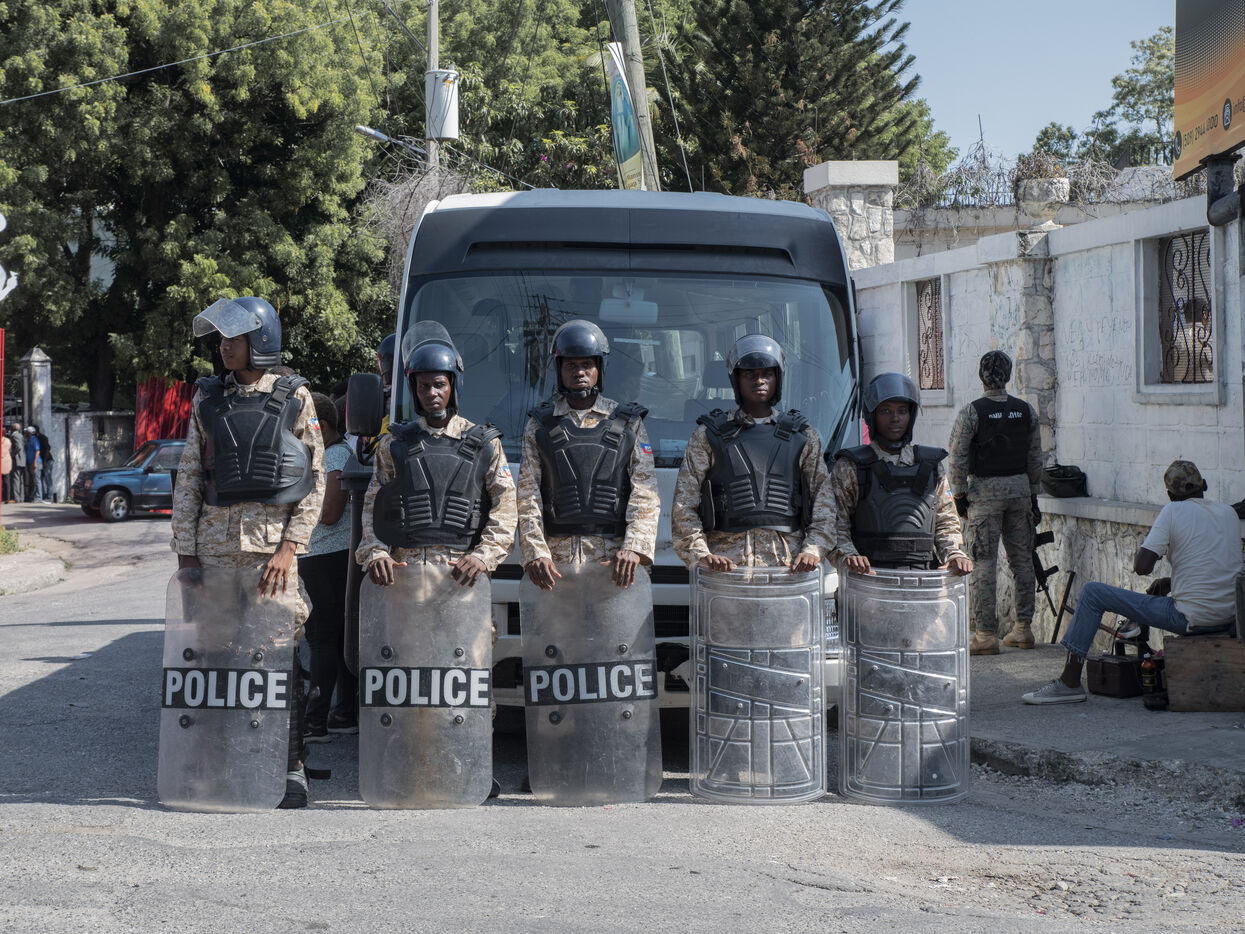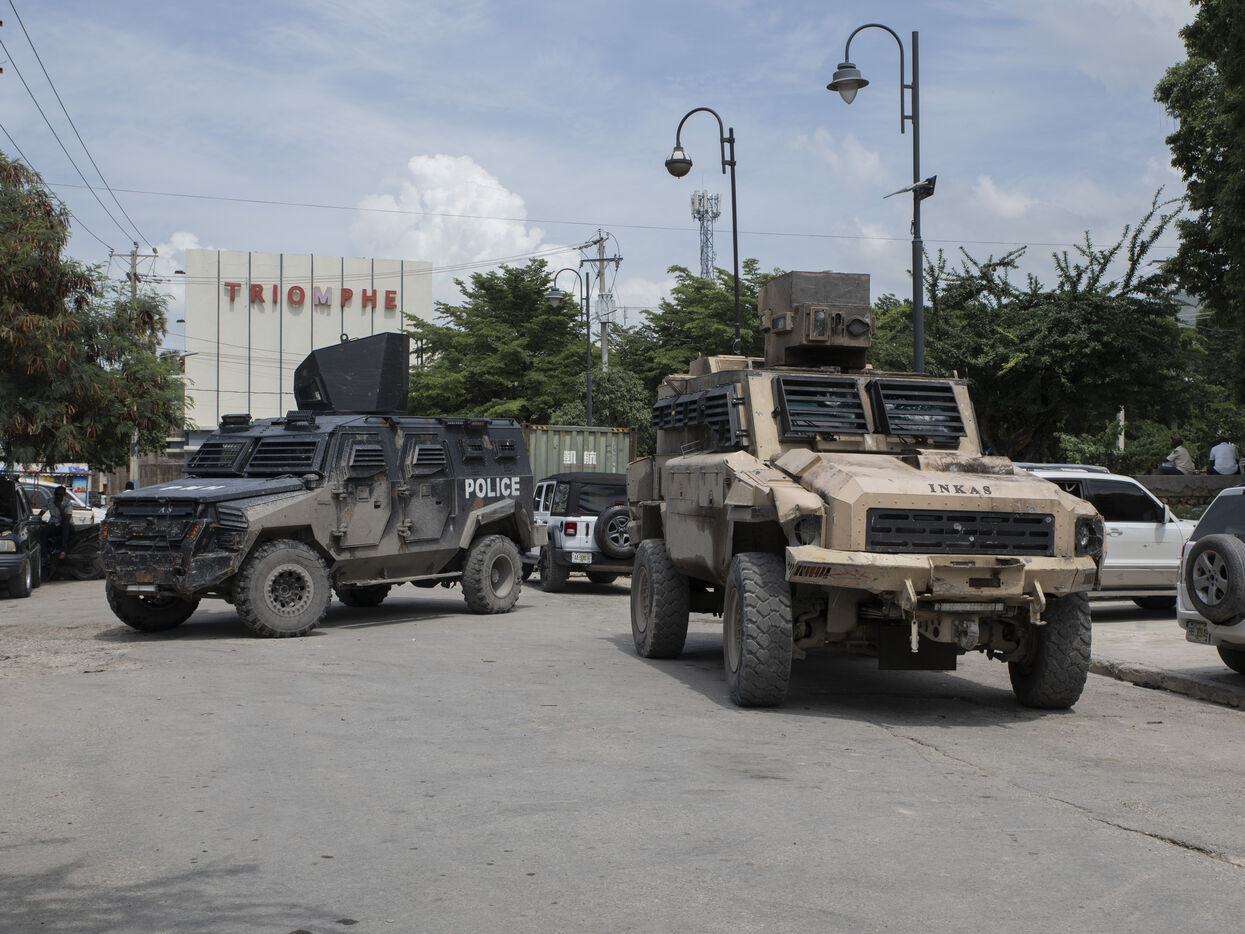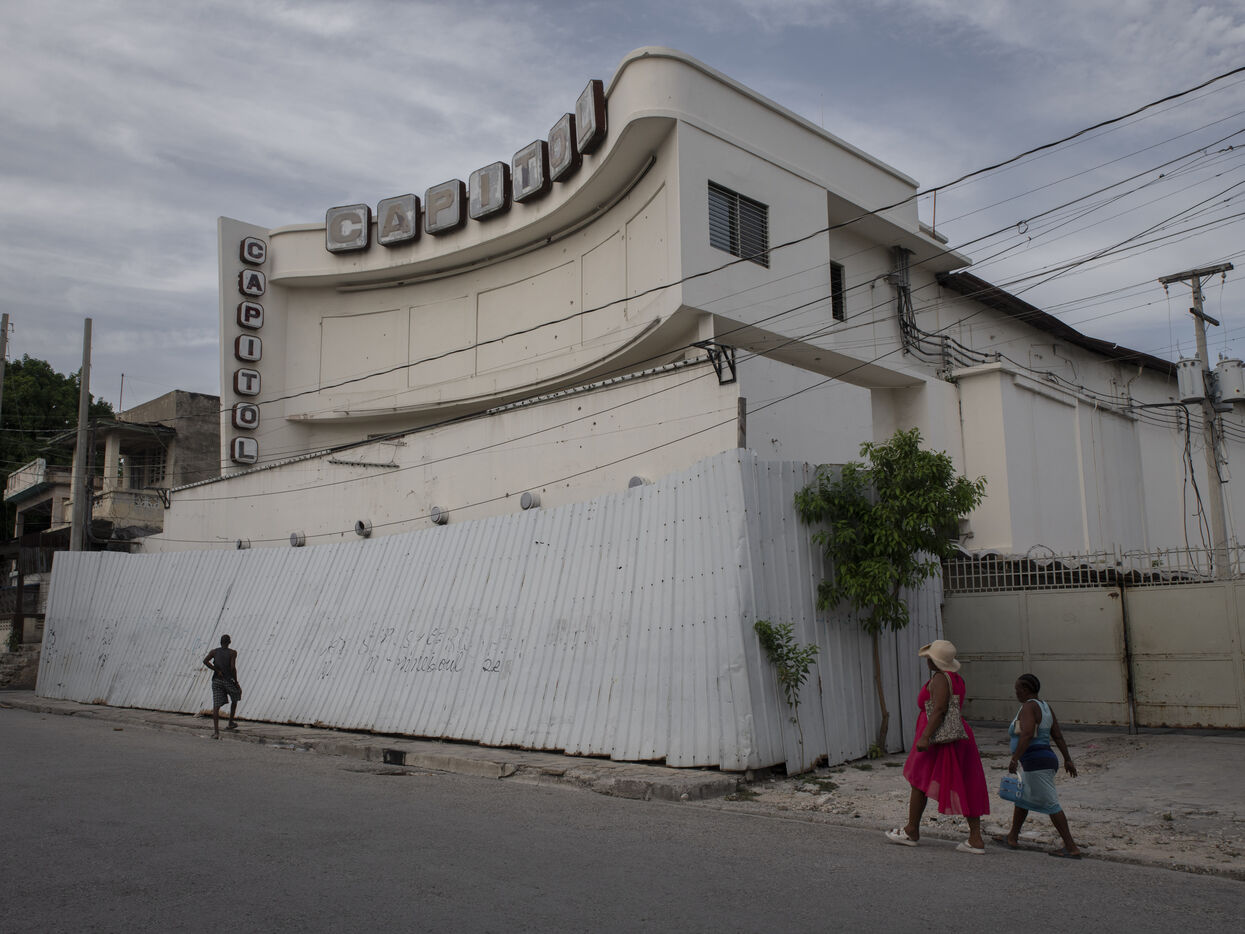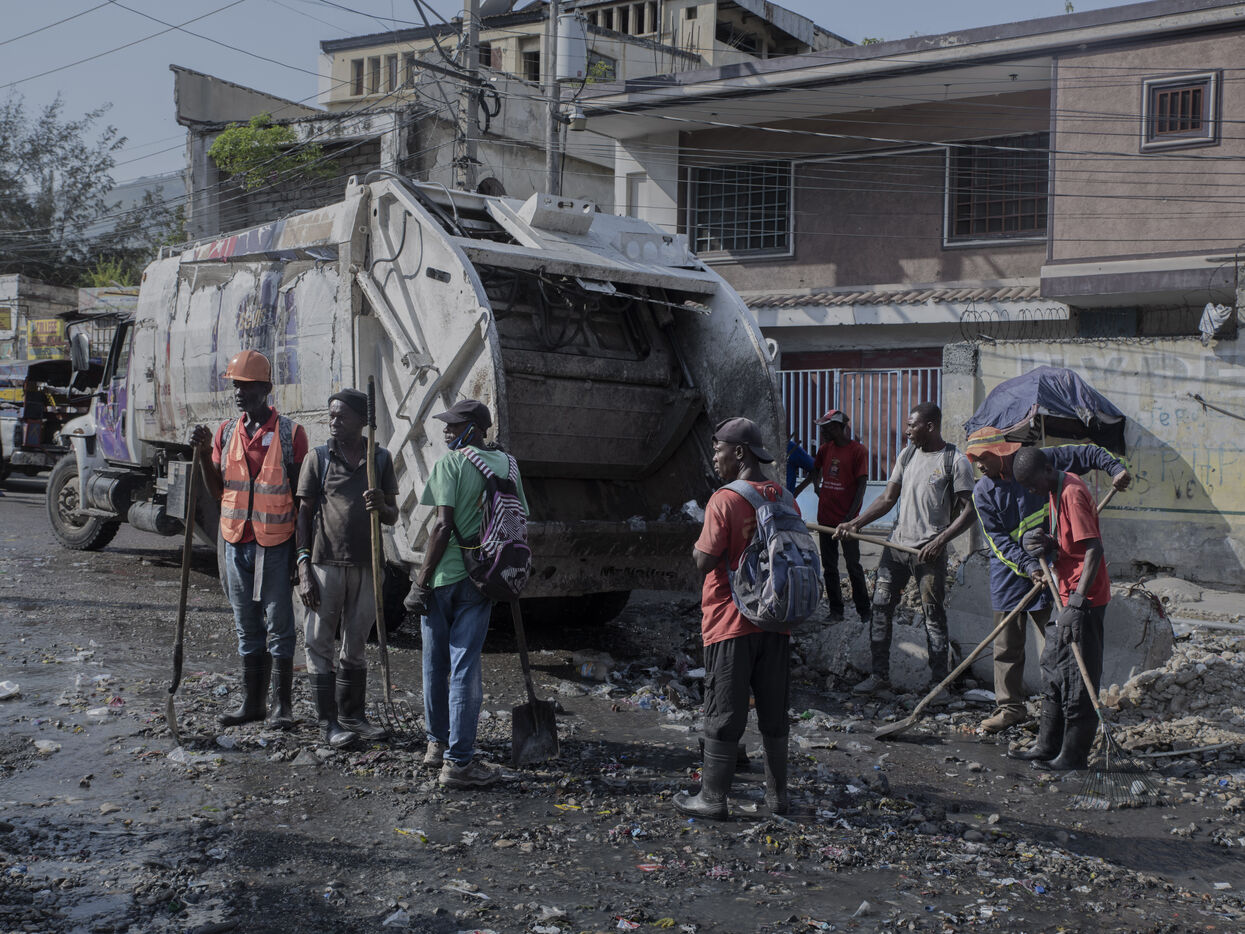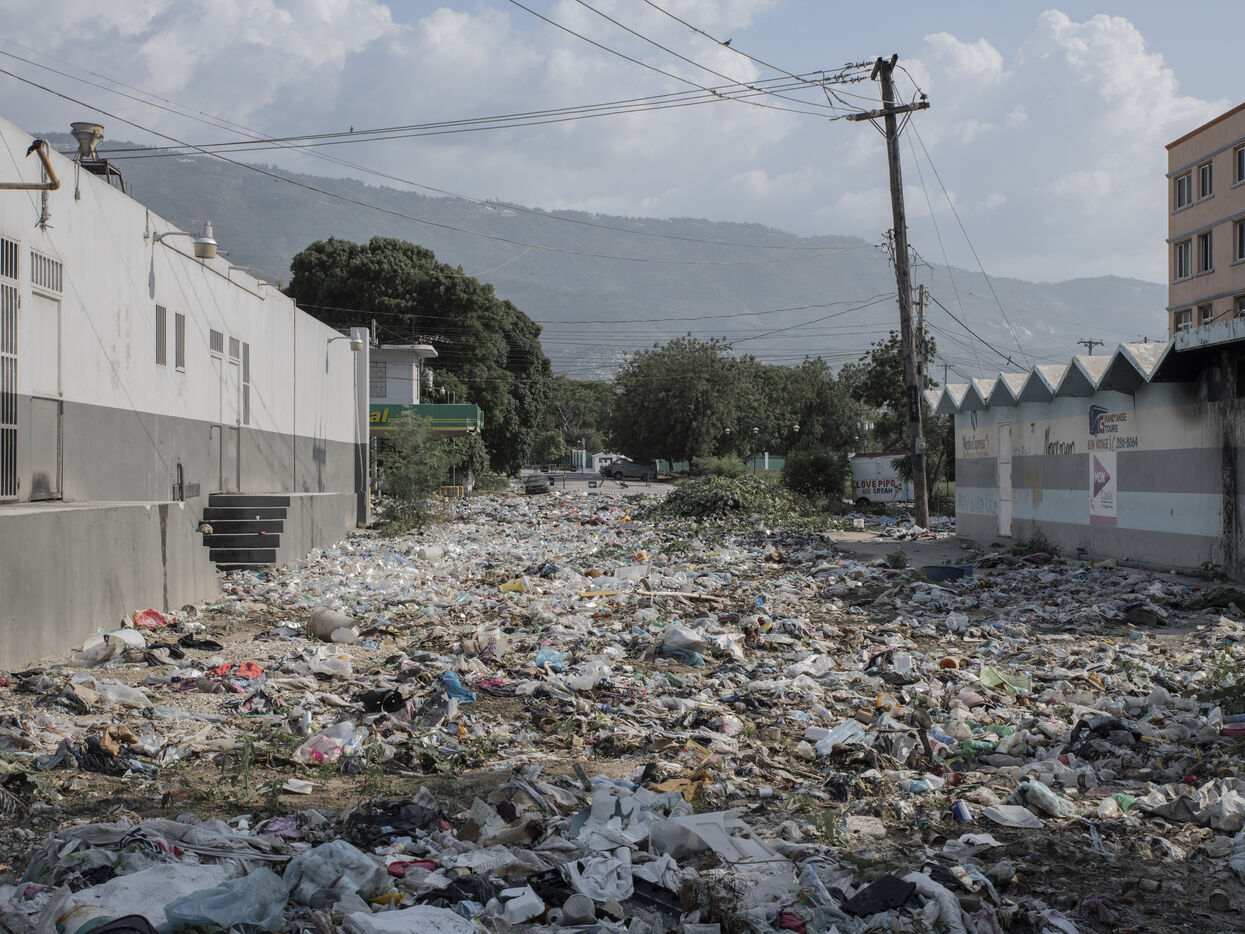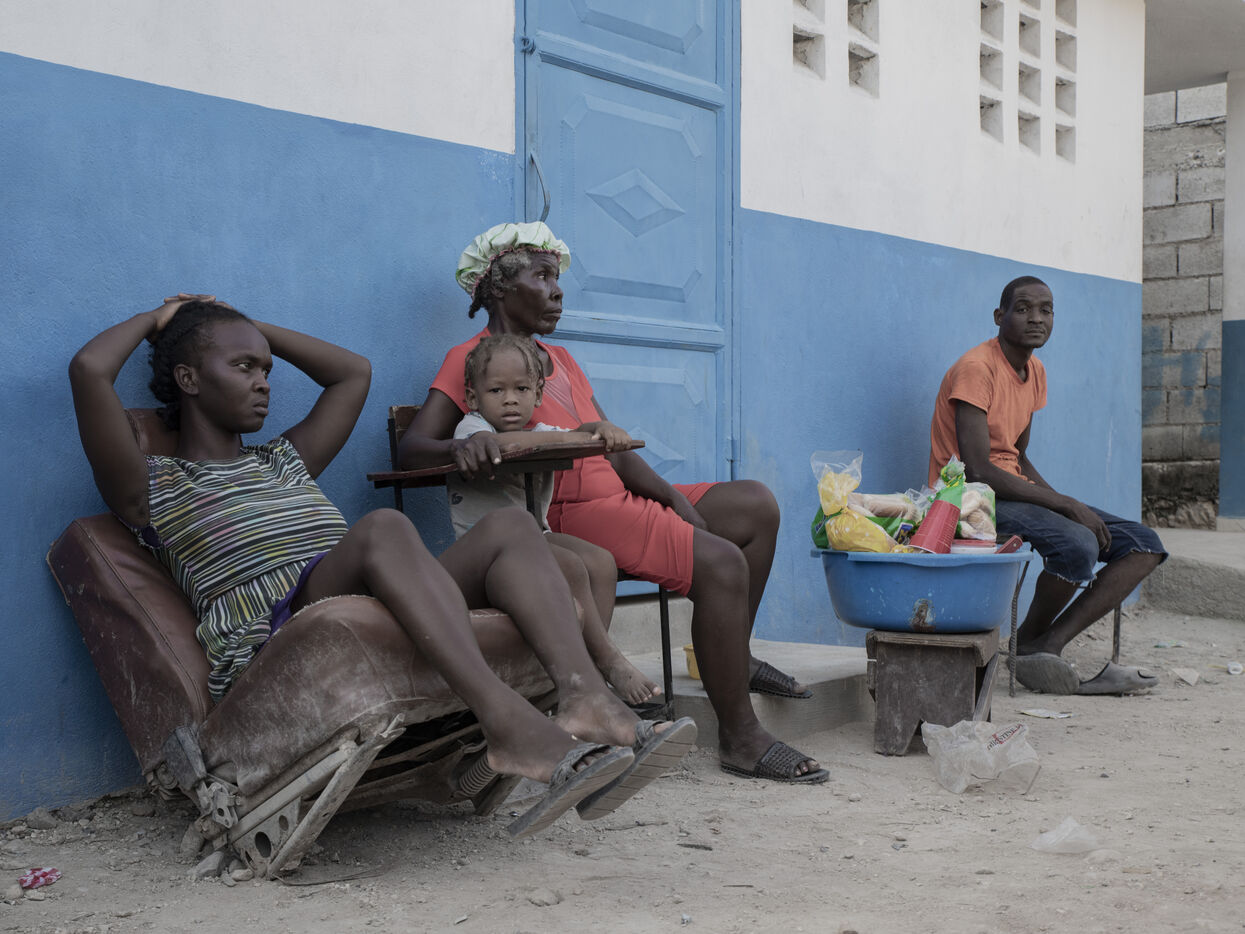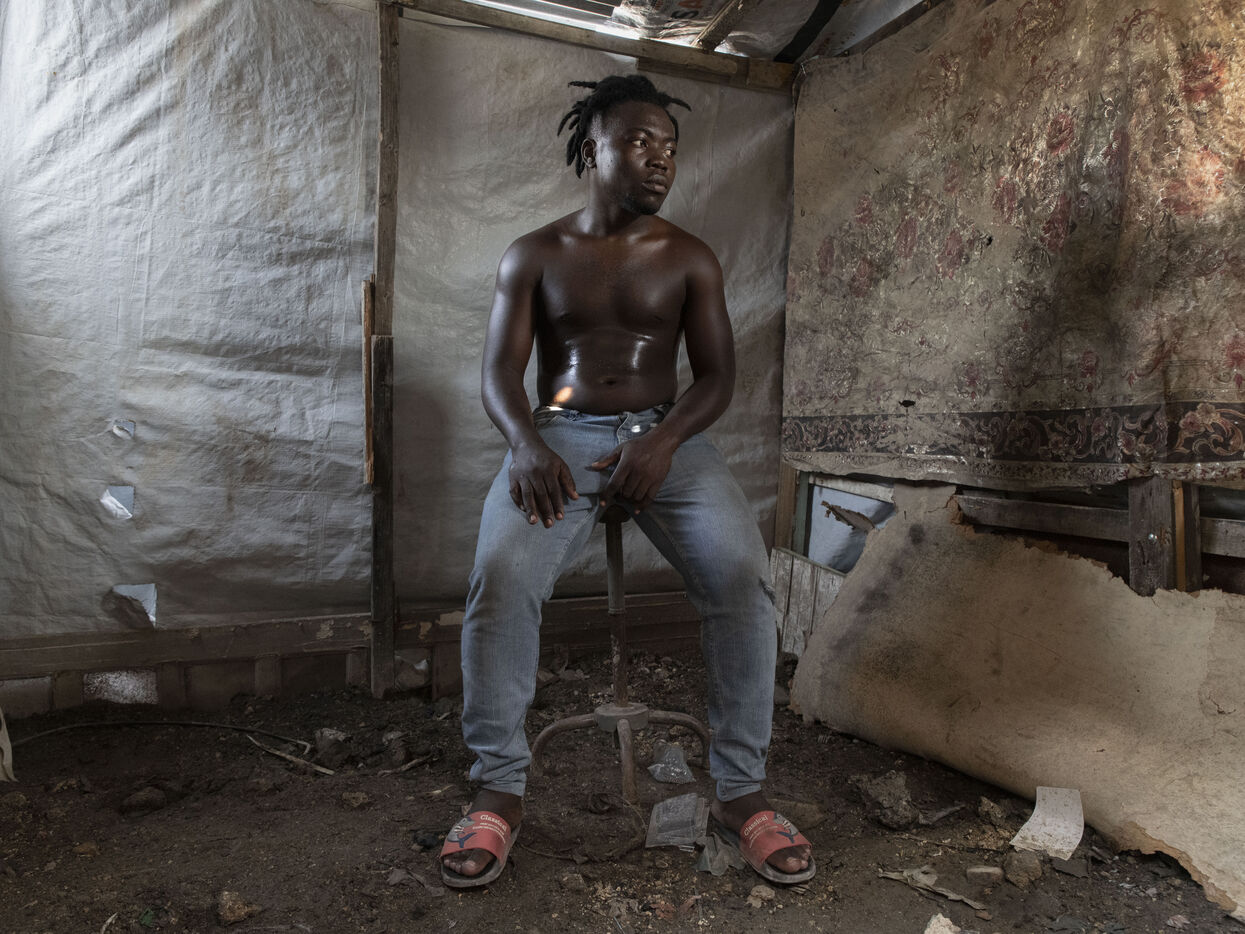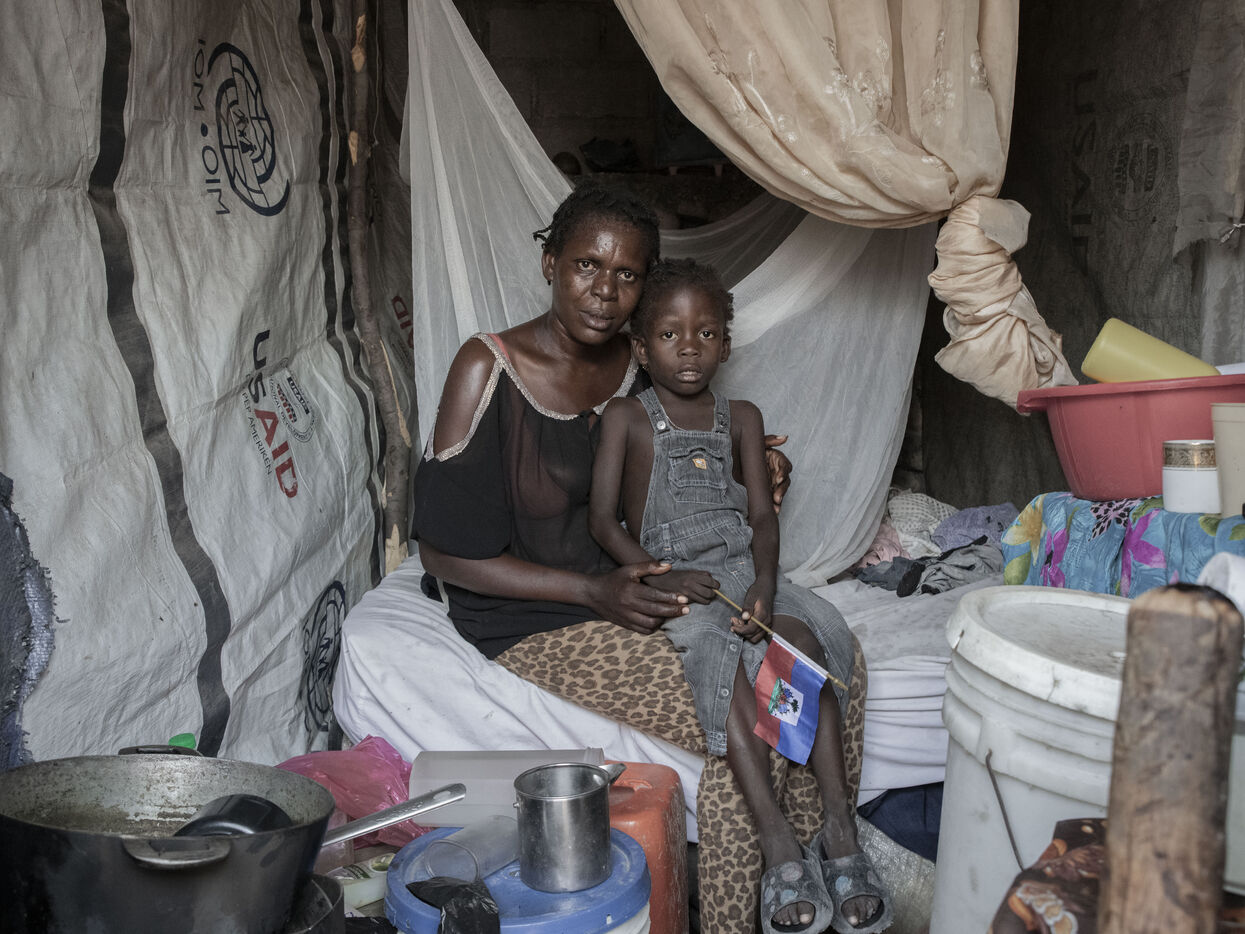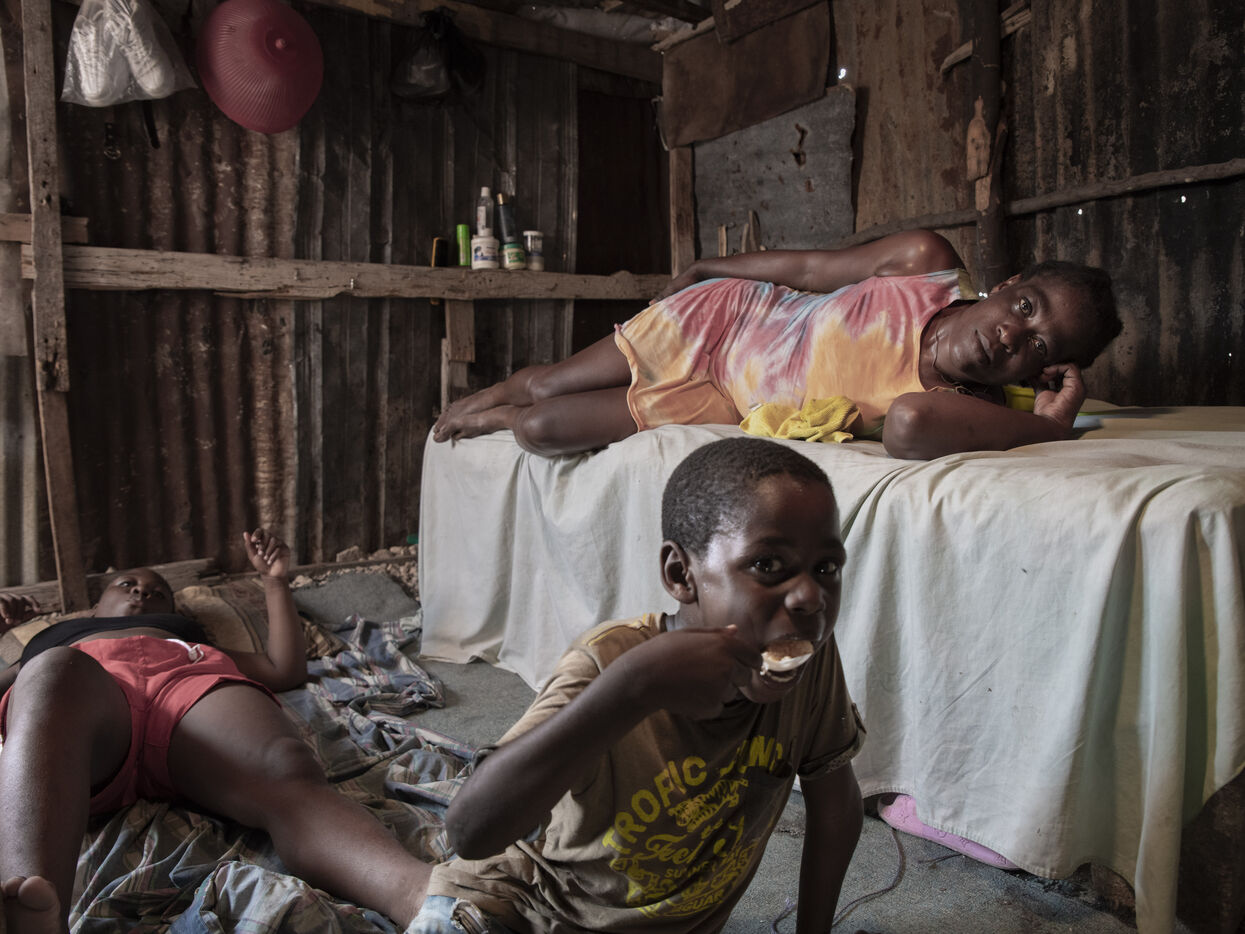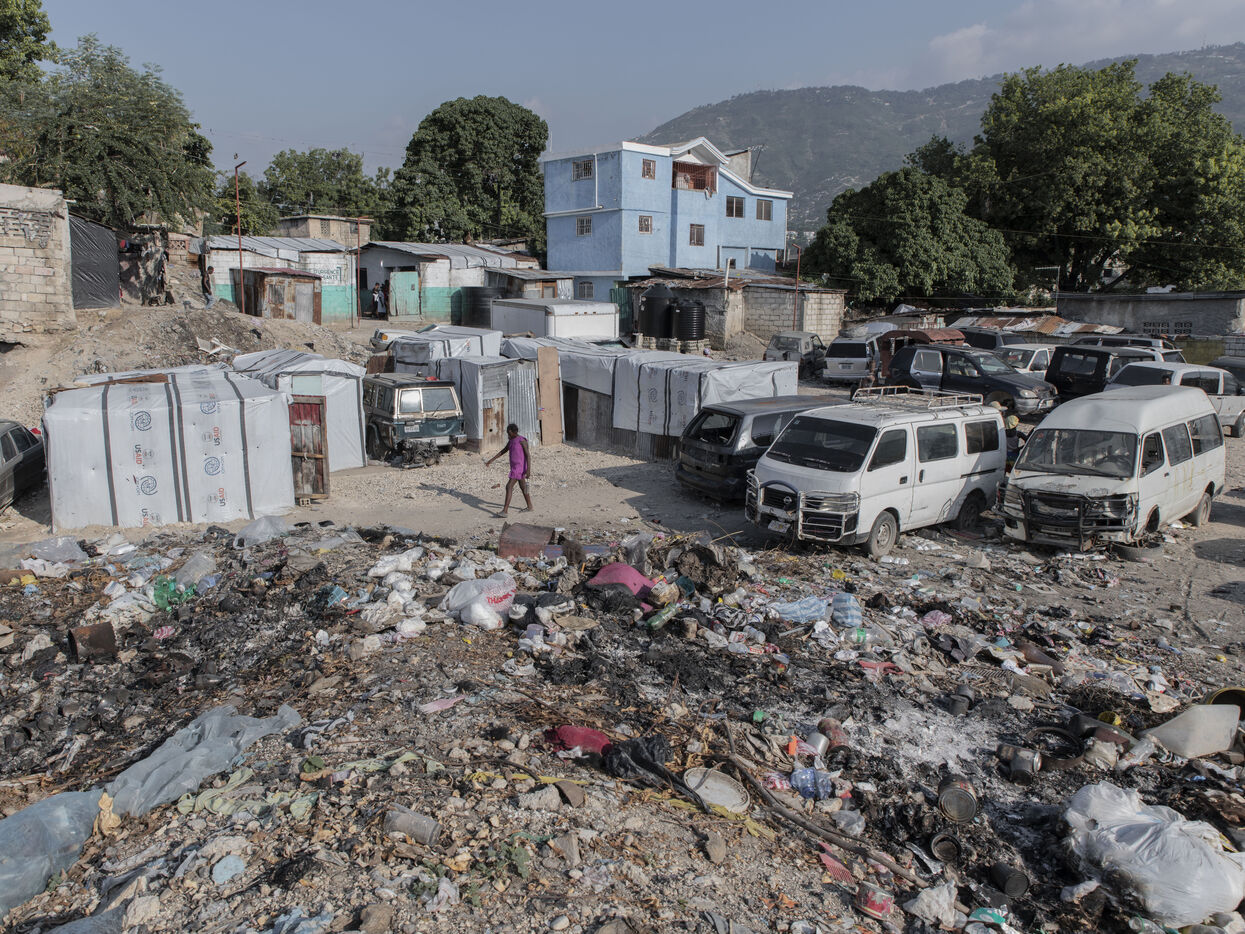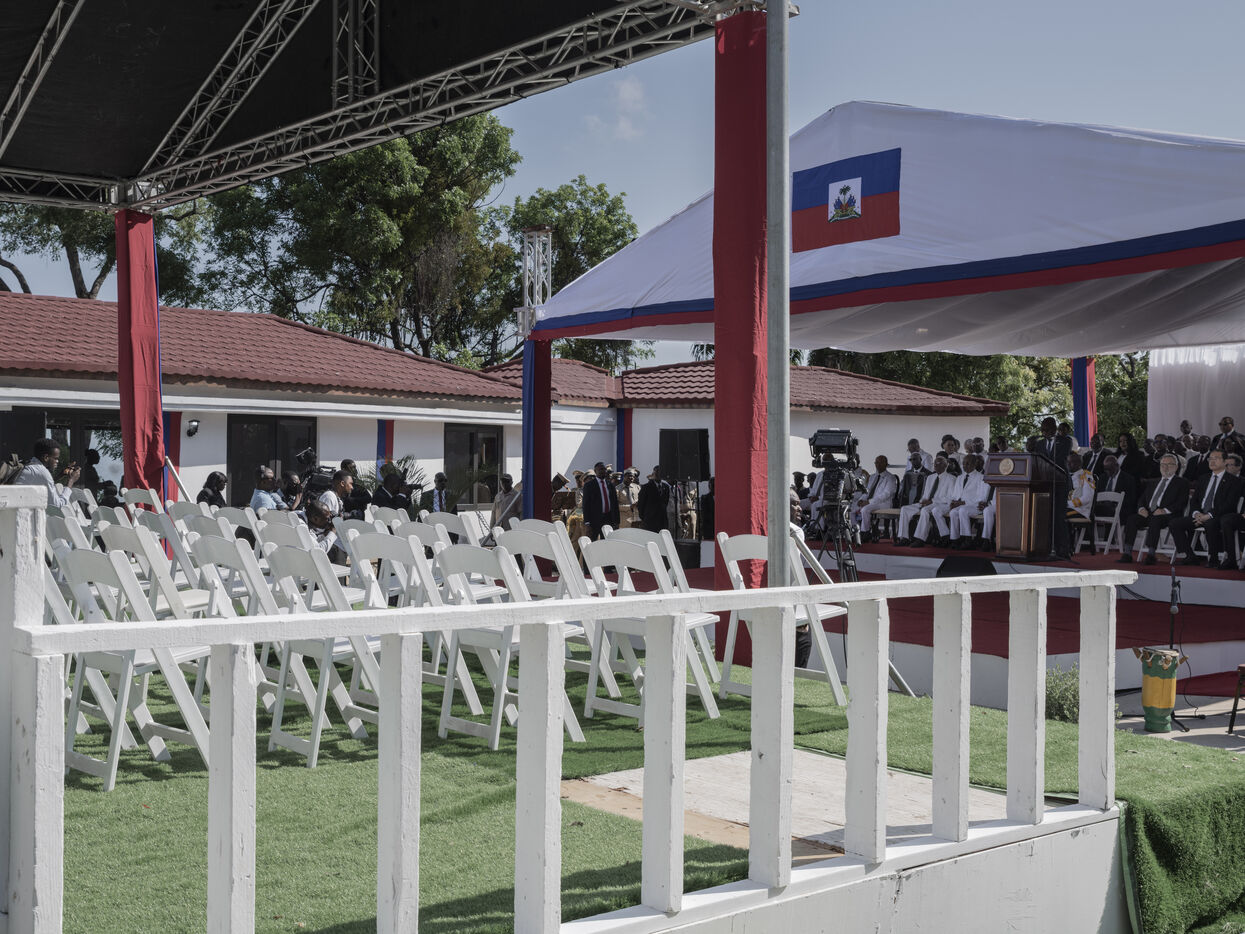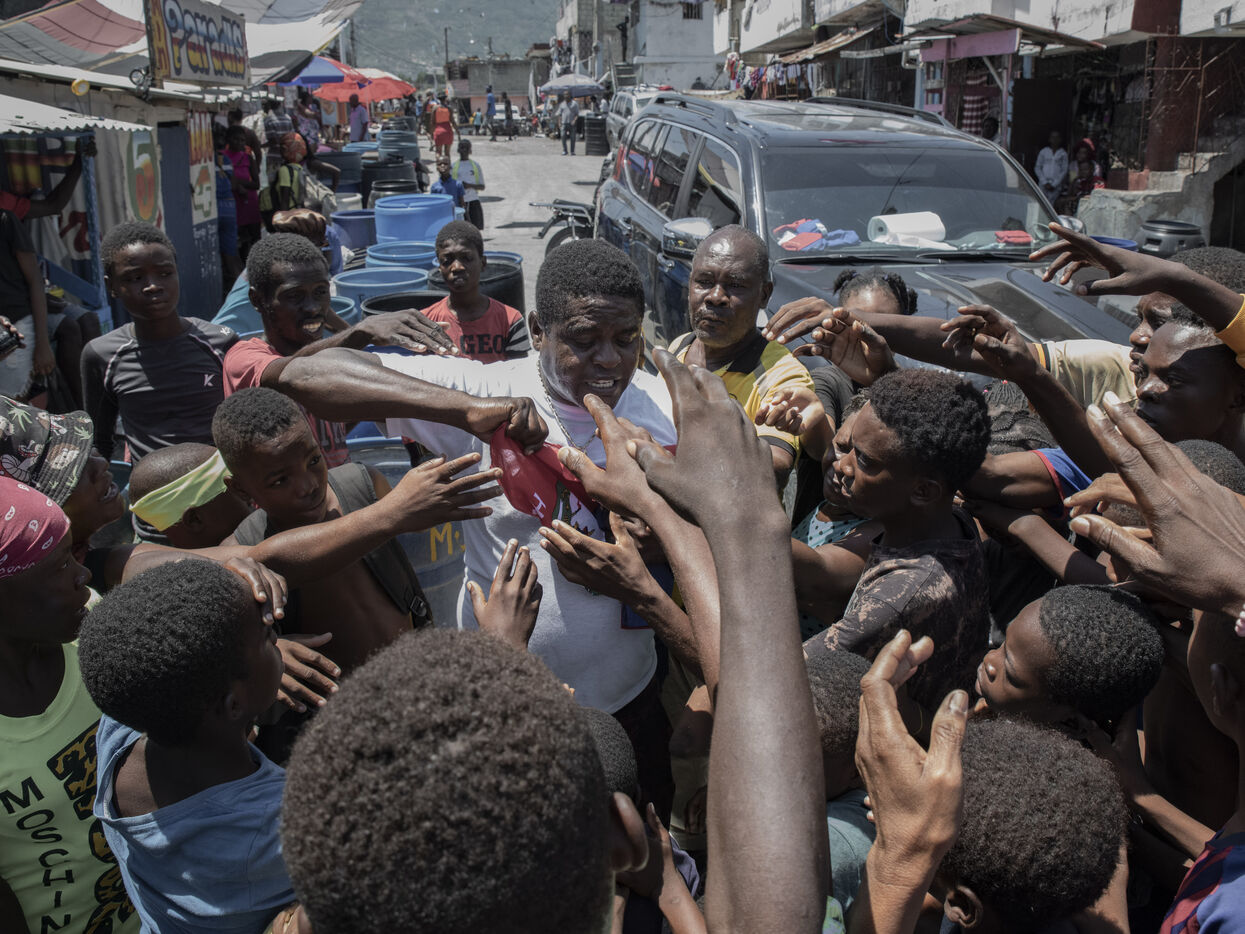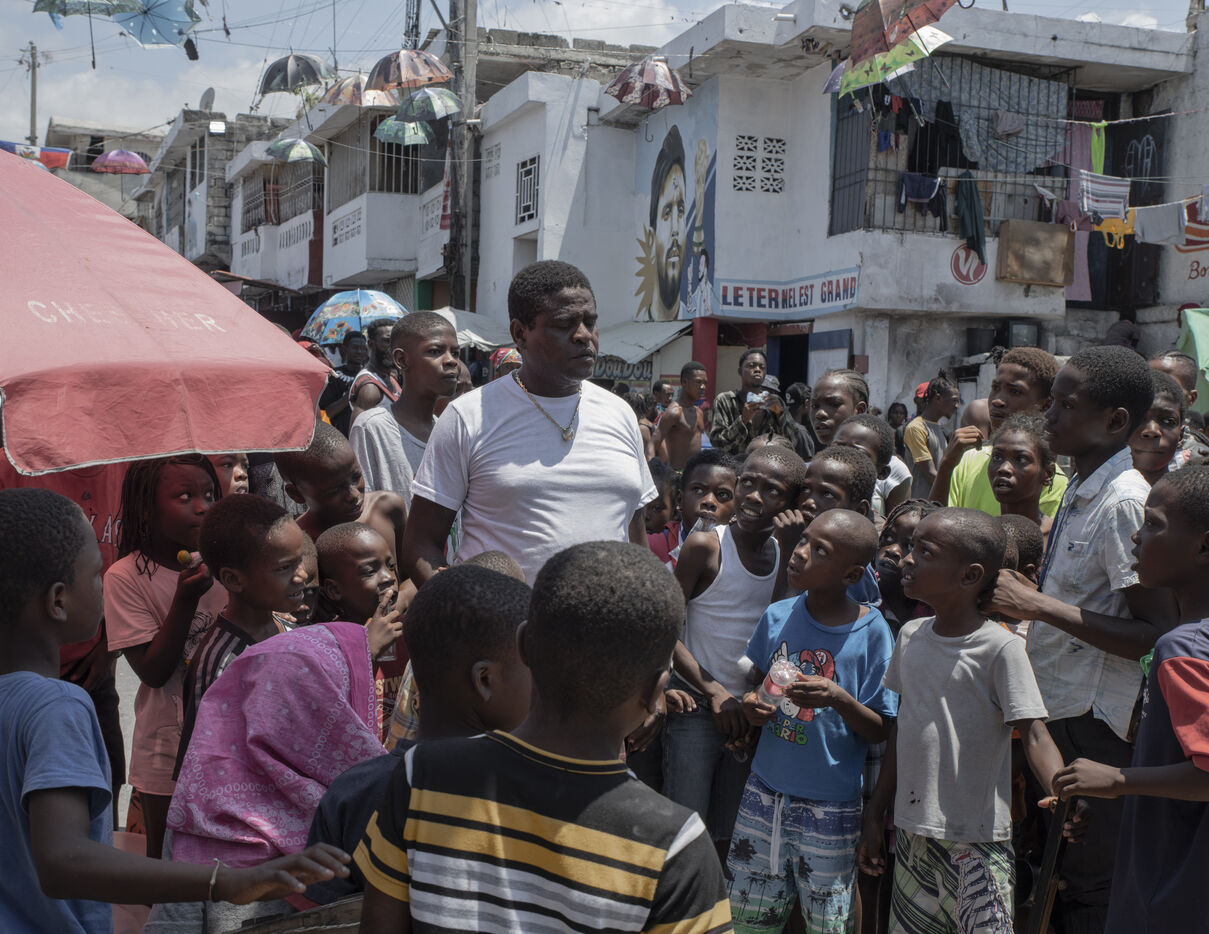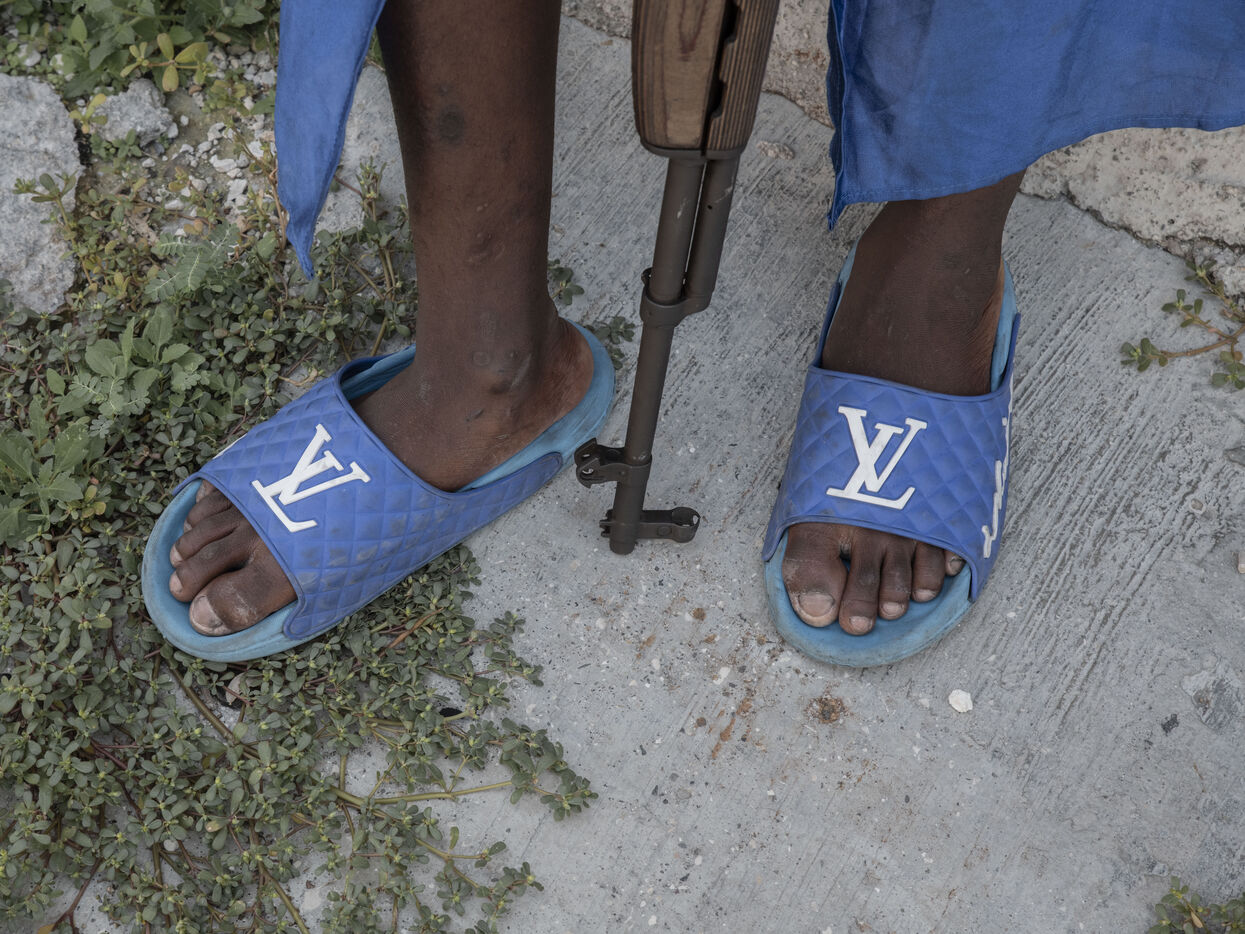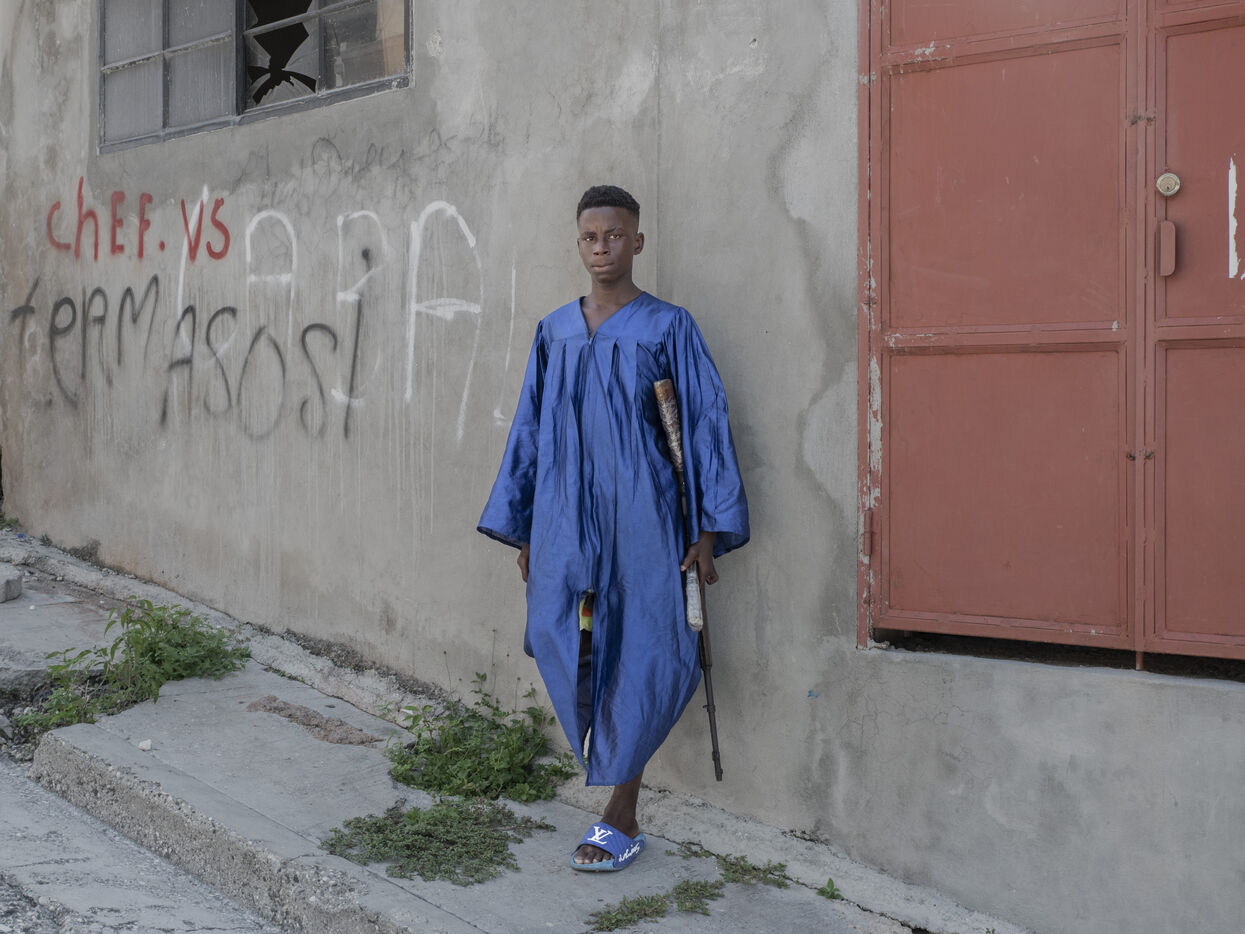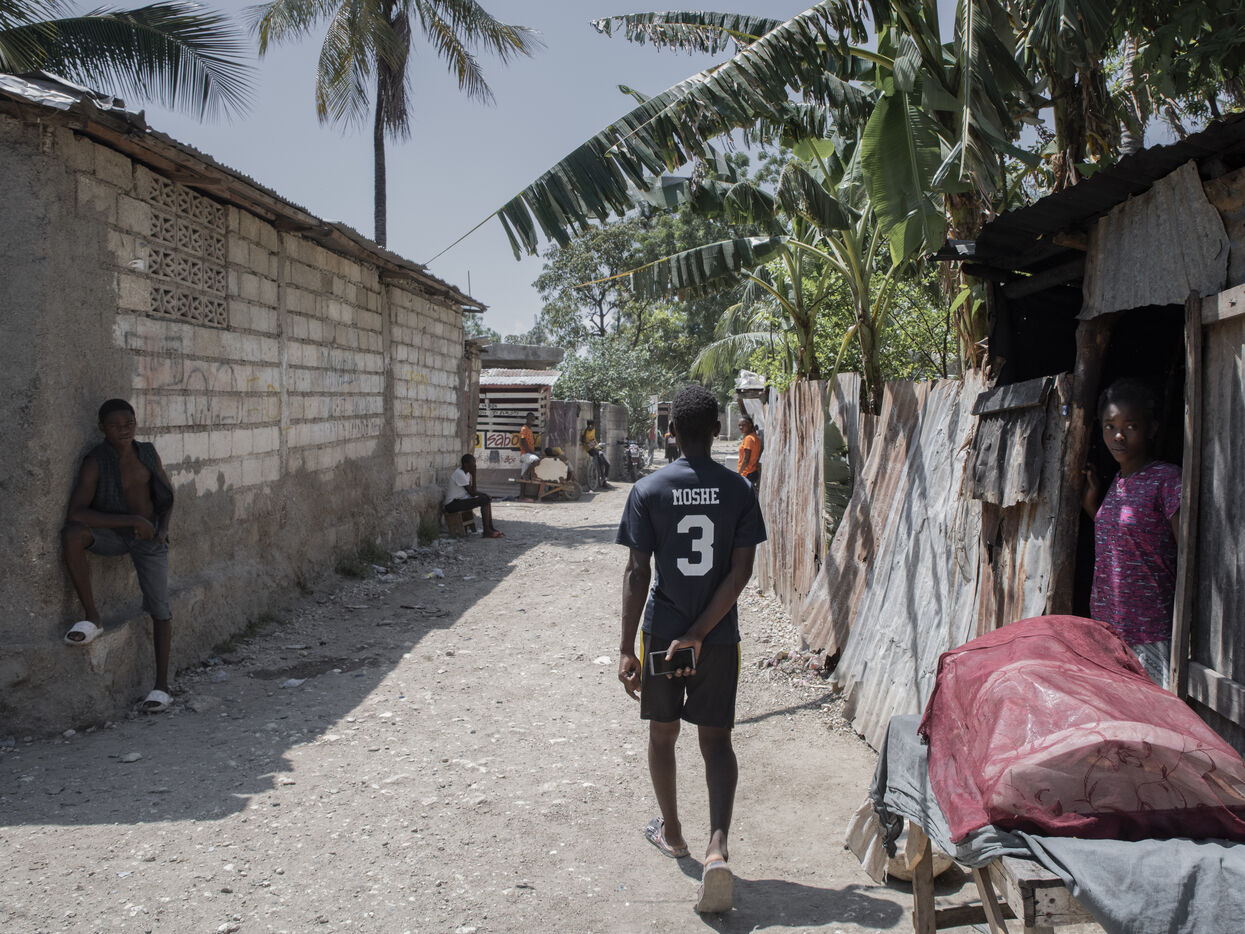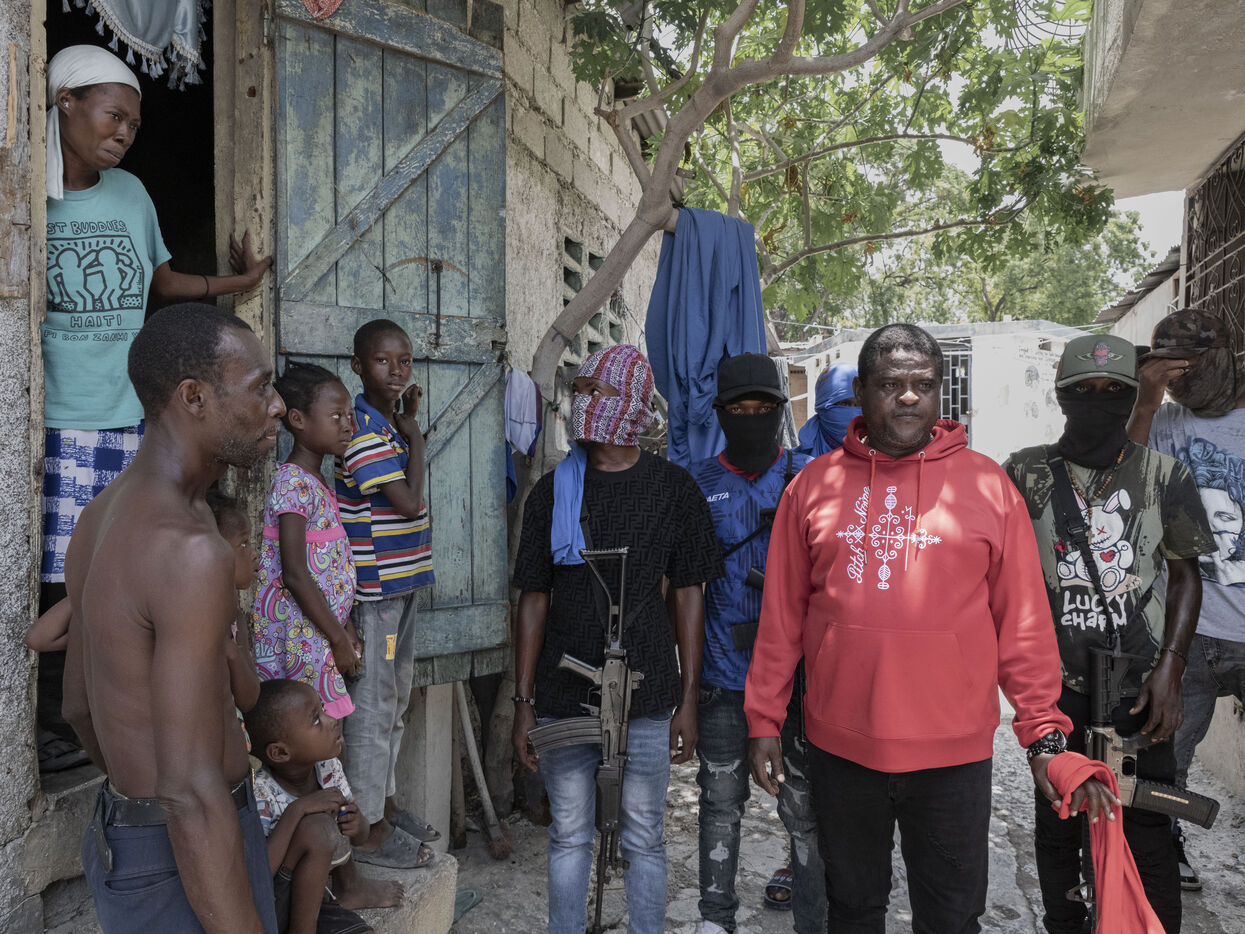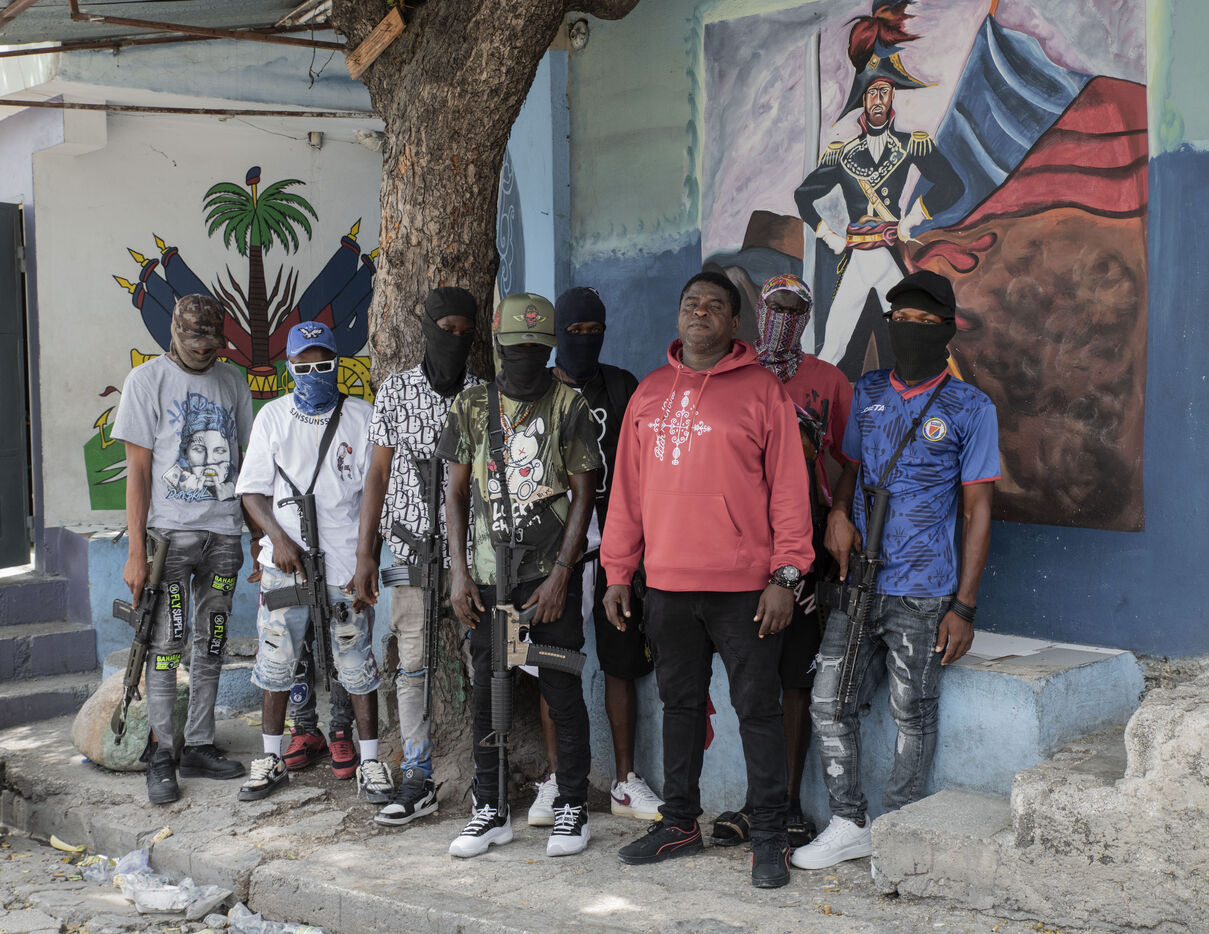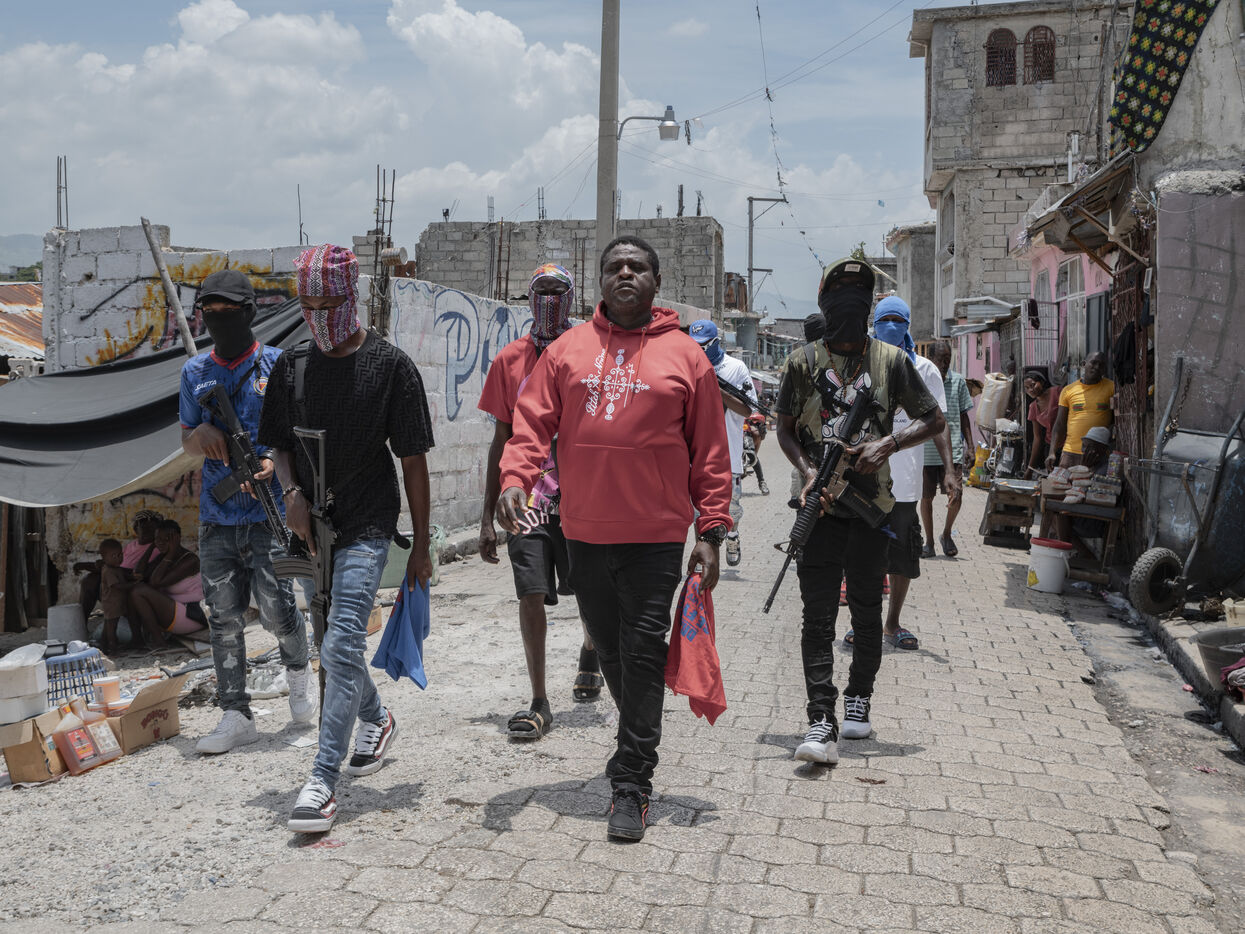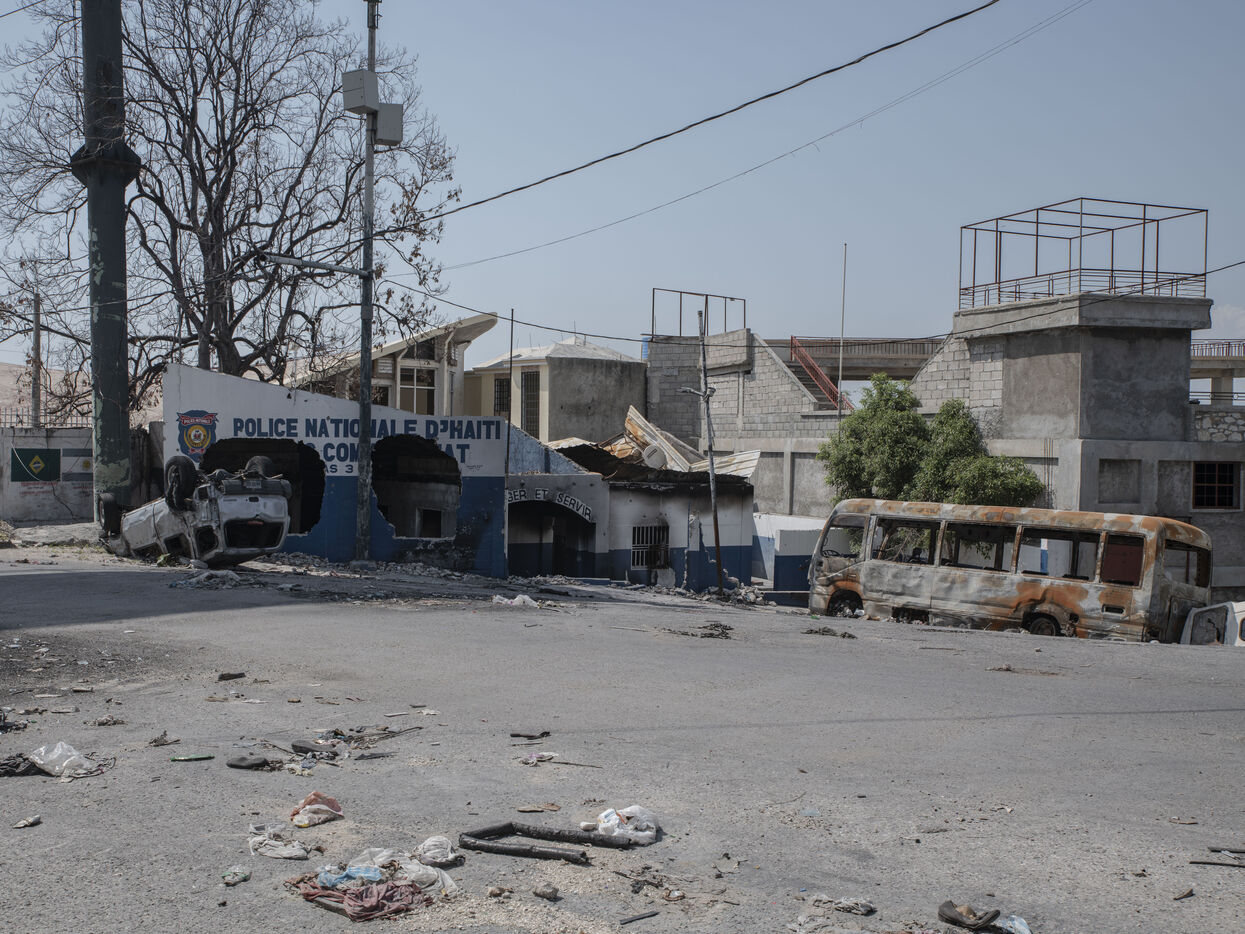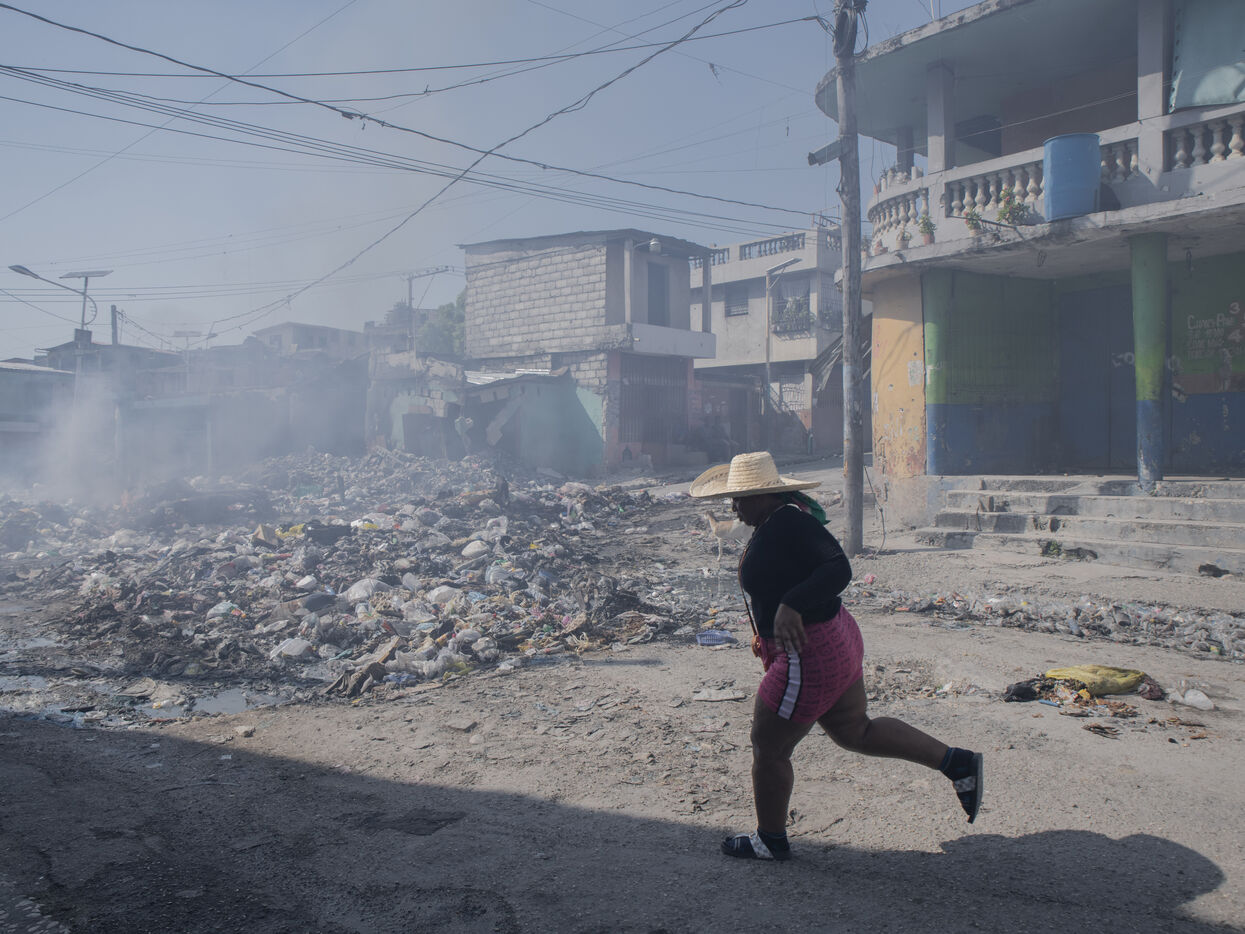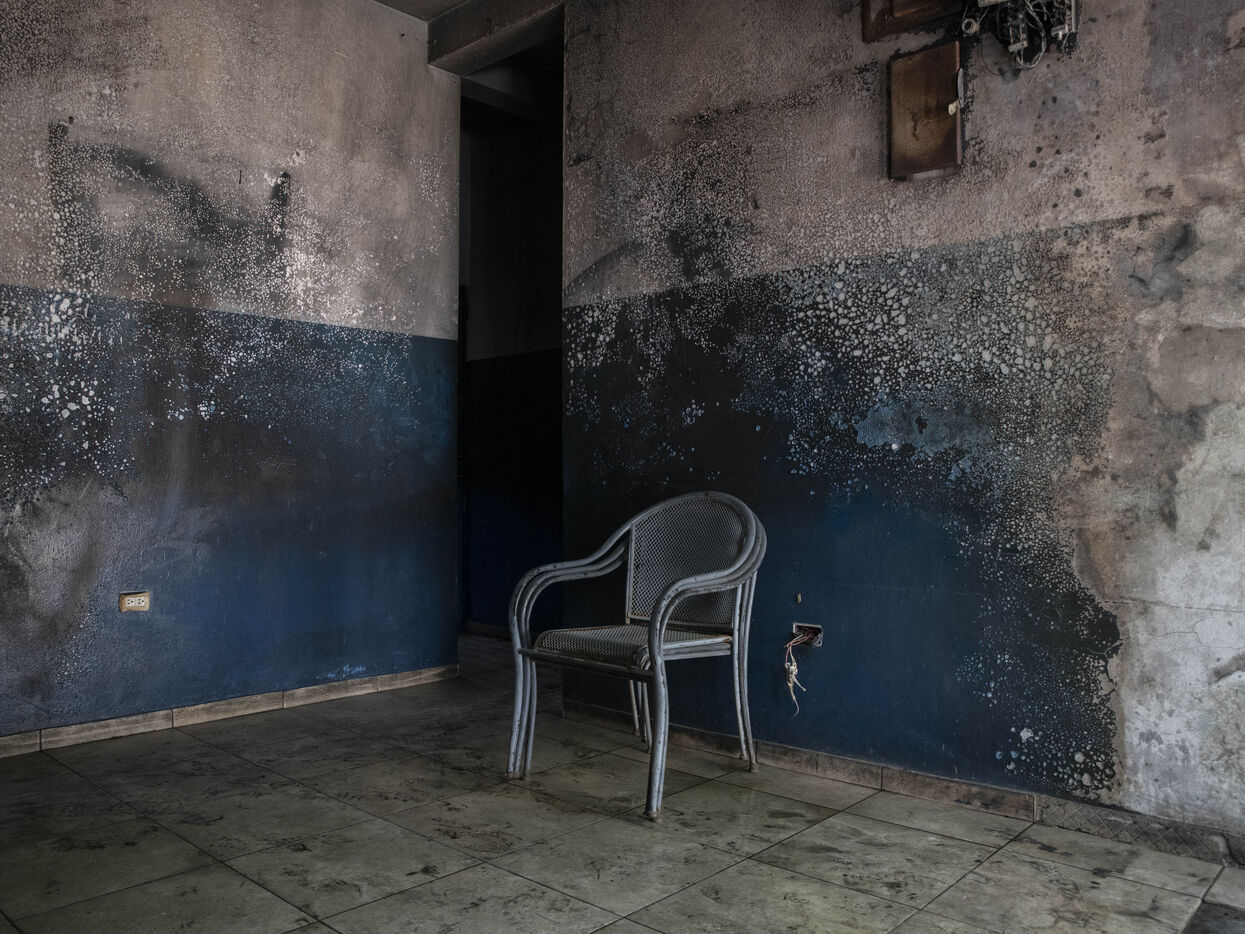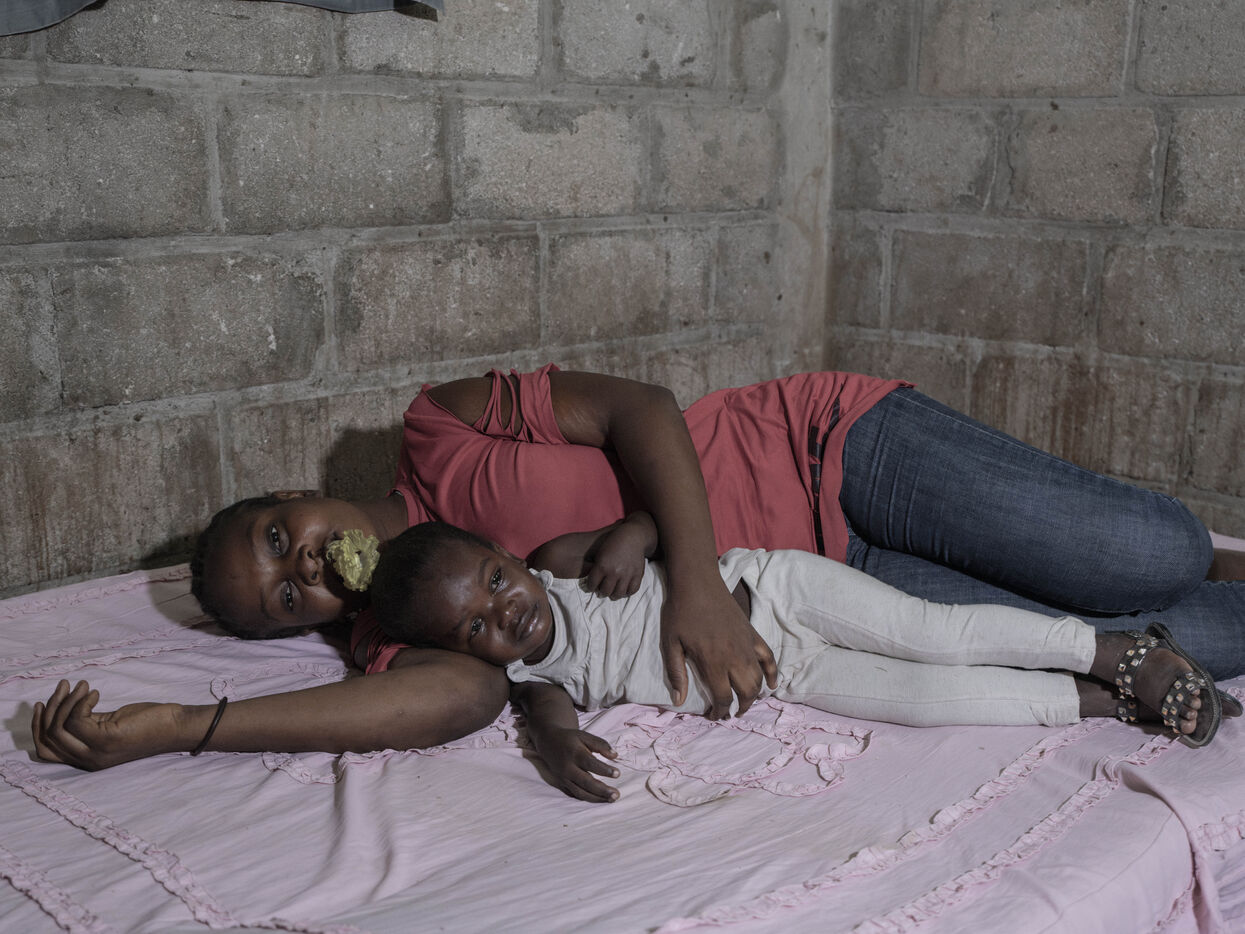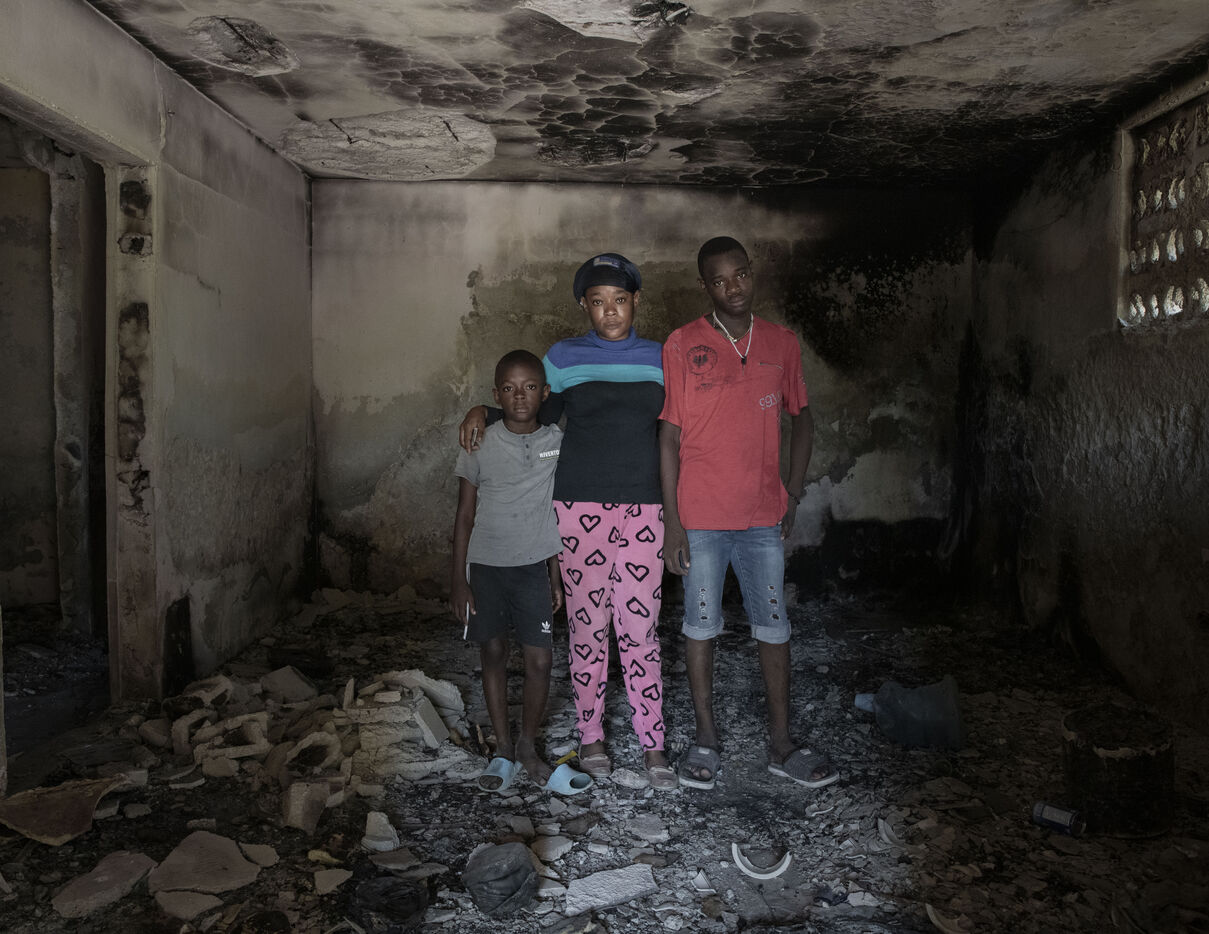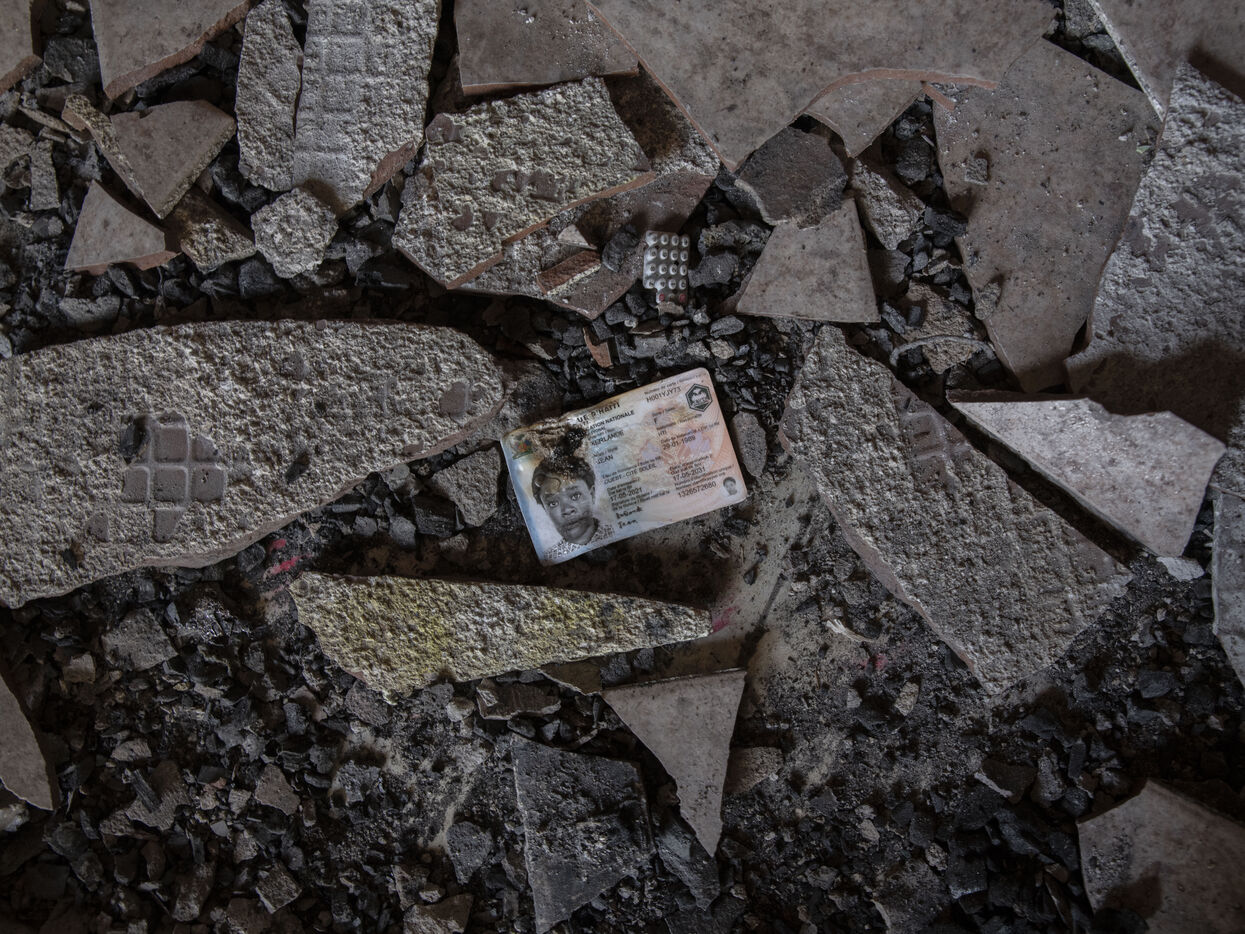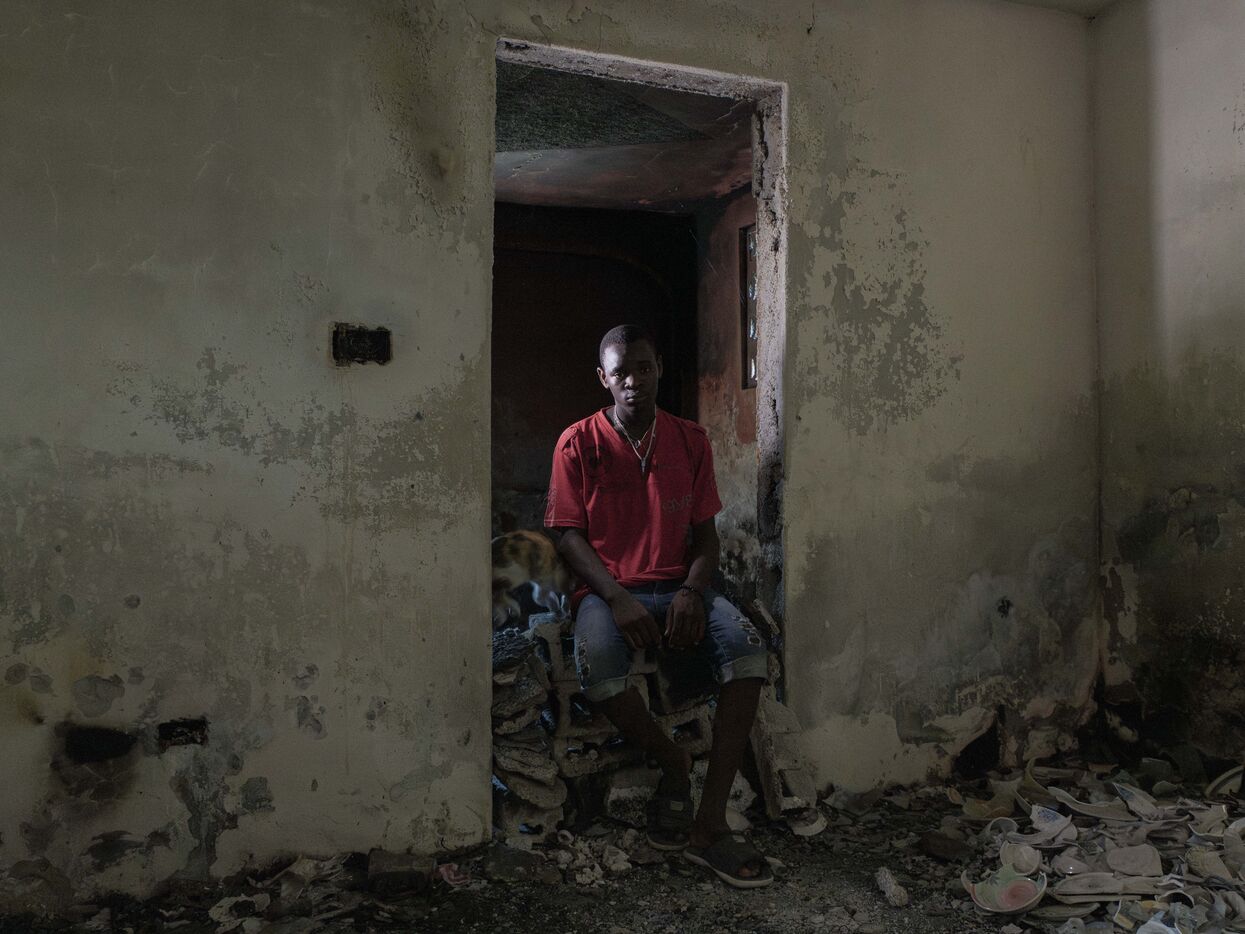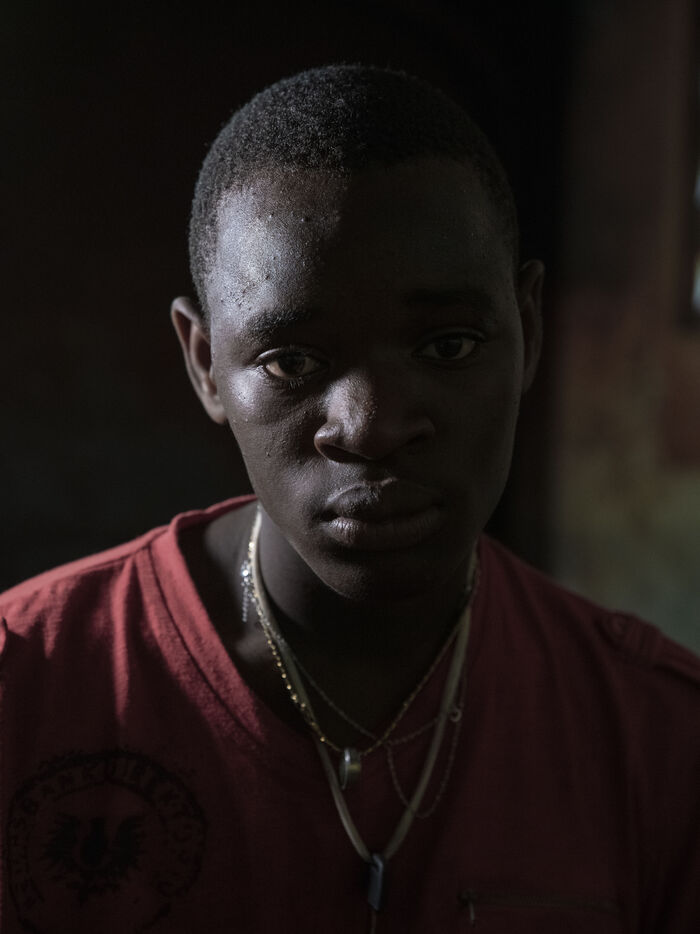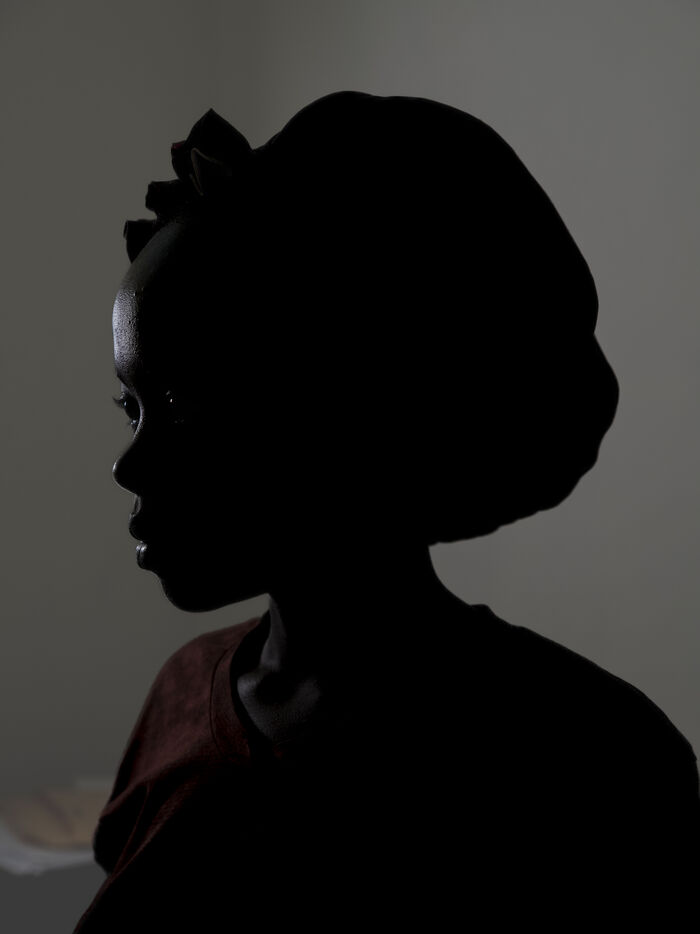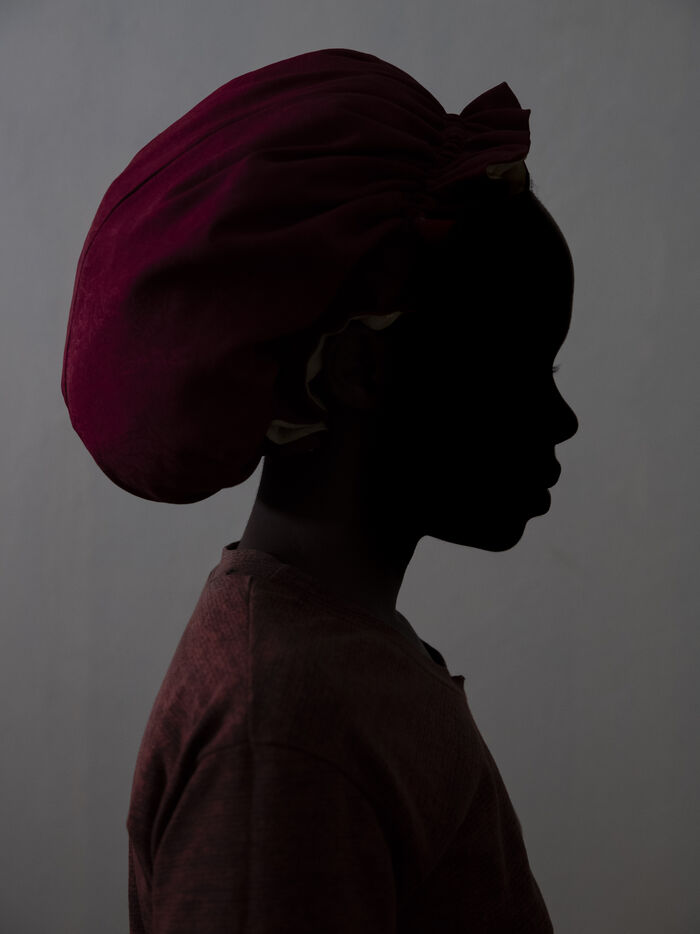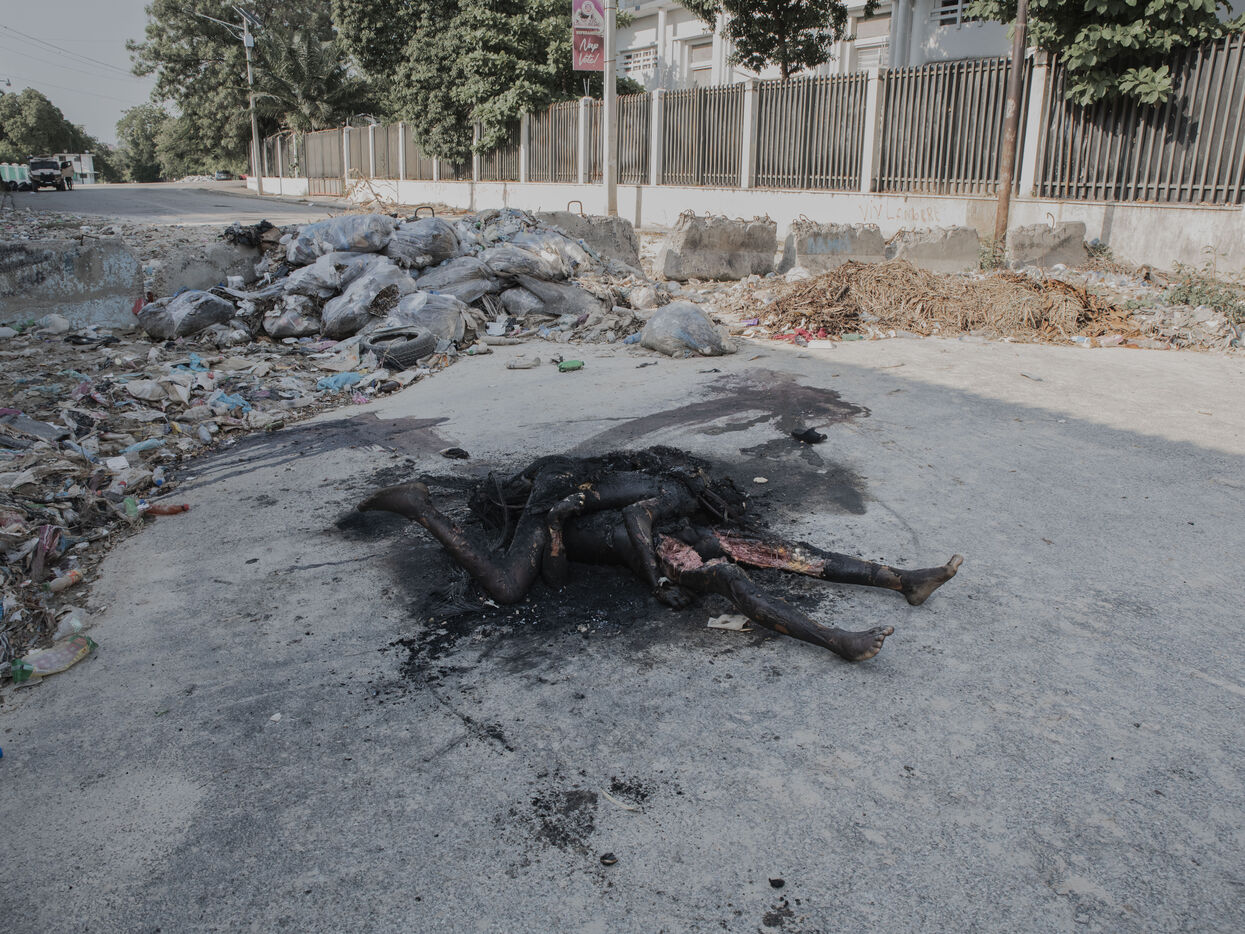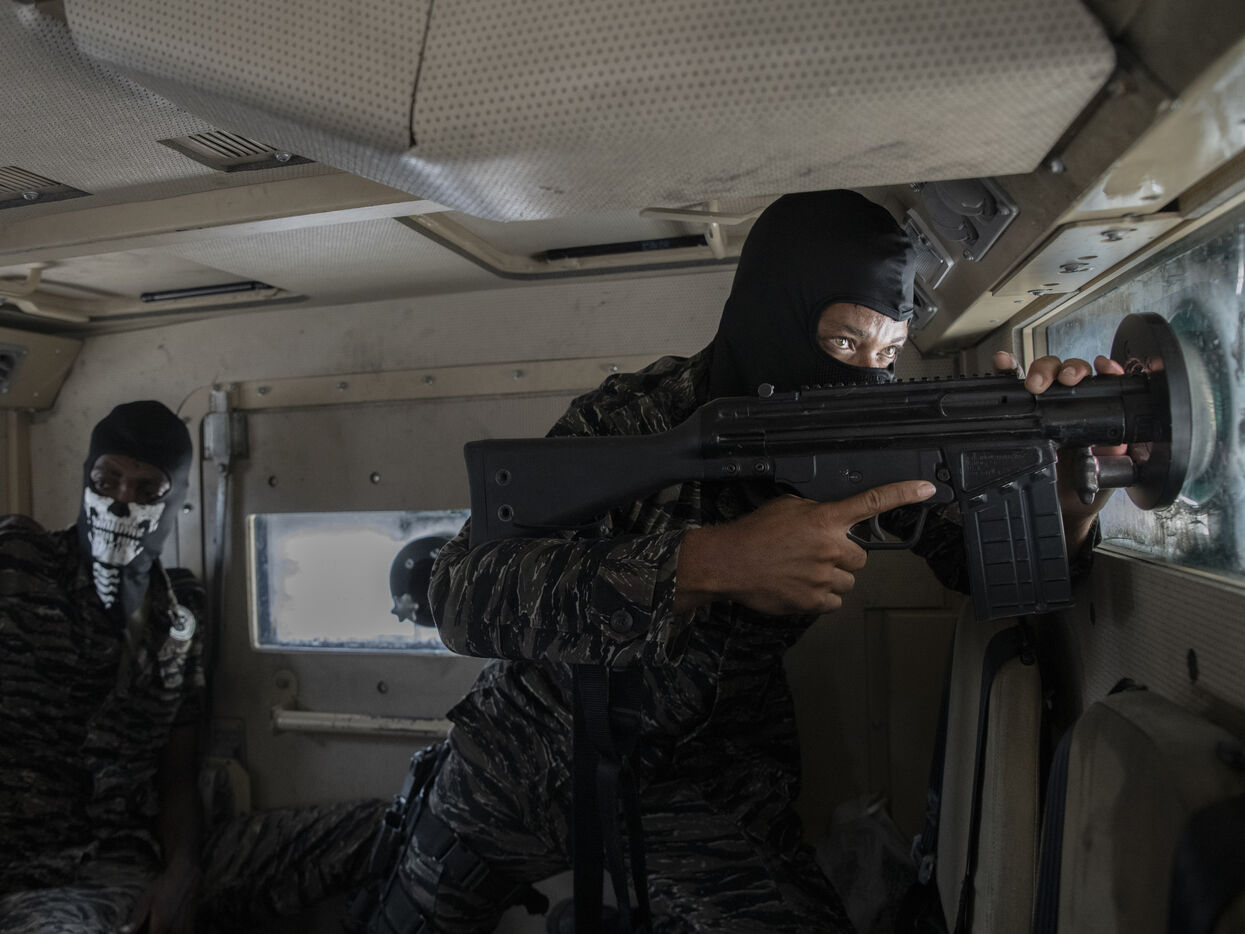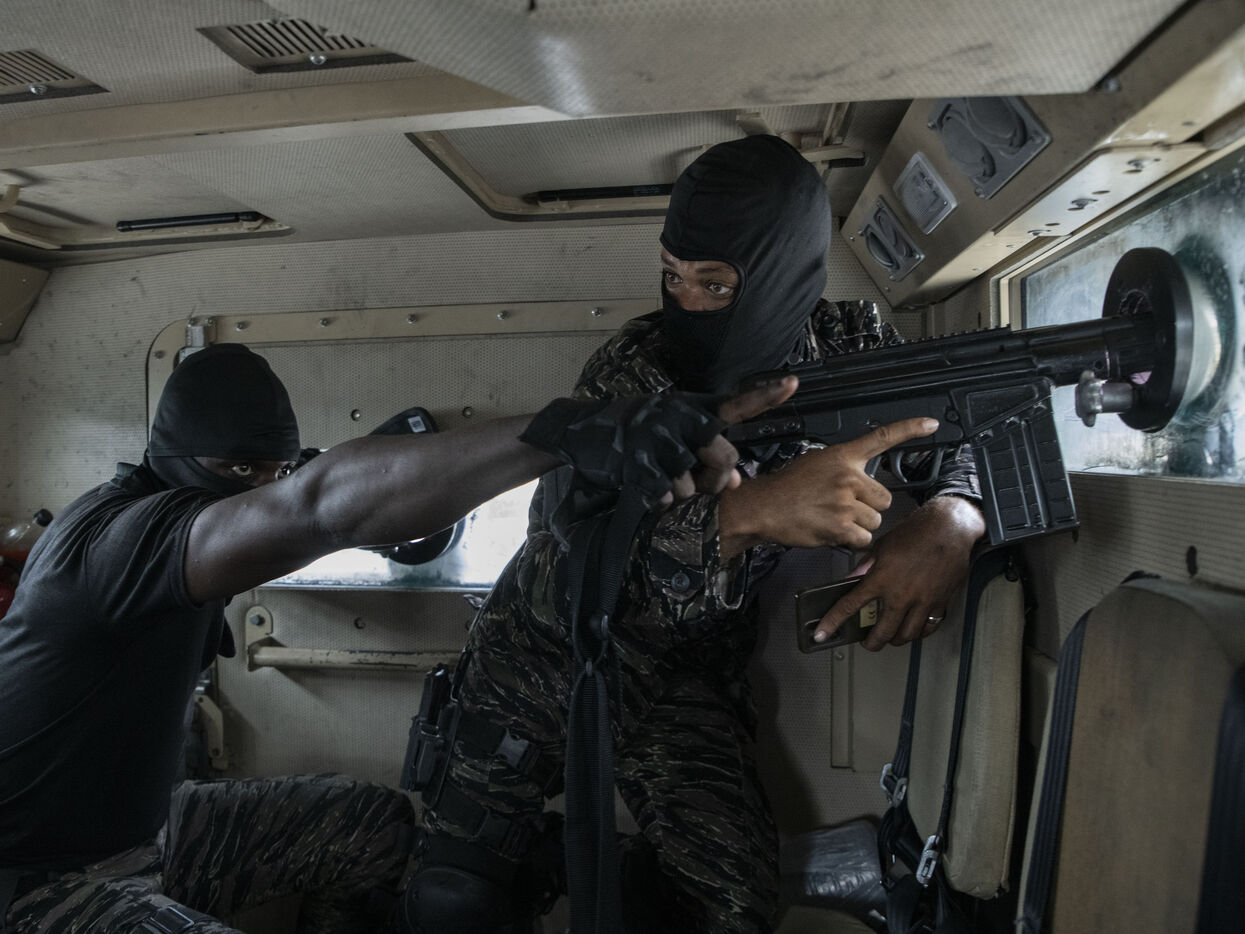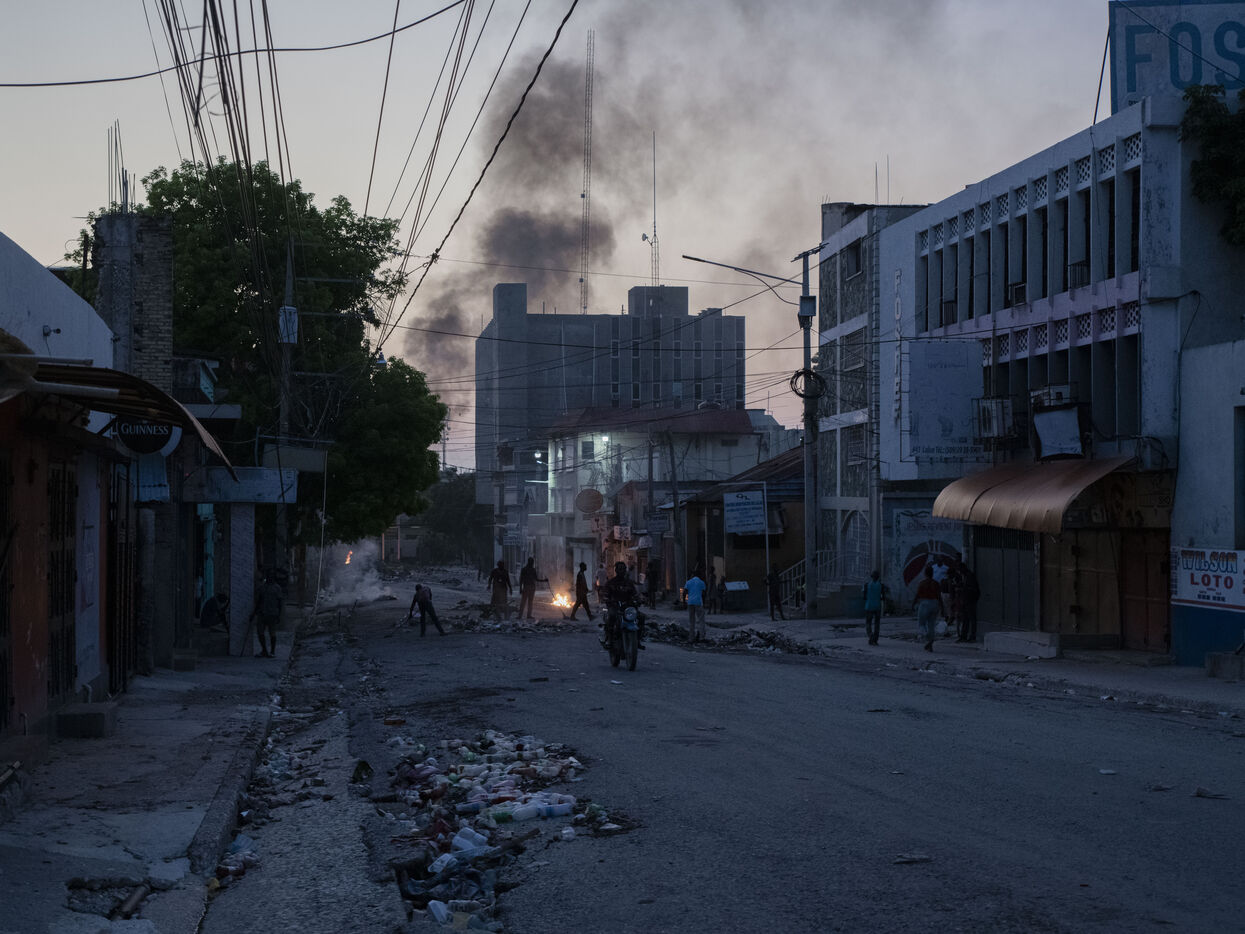Port-au-Prince, une capitale à l'agonie
In late February, a coalition of gangs, led by a former police officer who became the leader of the criminal organization G9, launched assaults on strategic targets in Port-au-Prince, forcing Ariel Henry, the interim Prime Minister, to resign and marking the end of the former government.
Now 90% controlled by gangs, the Haitian capital has become the scene of daily deadly clashes. In most neighborhoods of the city, the state's presence is only visible during operations by the Haitian police, who only venture there in armored vehicles. Bearing the brunt of this explosion of violence, the residents of Port-au-Prince are fleeing their neighborhoods to seek refuge in the few areas where the gangs do not reign supreme. Over 95,000 displaced people are crowded into these areas, living in vacant lots or the deserted premises of schools and government buildings.
Port-au-Prince, a capital in agony
In late February, a coalition of gangs, led by a former police officer who became the leader of the criminal organization G9, launched assaults on strategic targets in Port-au-Prince, forcing Ariel Henry, the interim Prime Minister, to resign and marking the end of the former government.
Now 90% controlled by gangs, the Haitian capital has become the scene of daily deadly clashes. In most neighborhoods of the city, the state's presence is only visible during operations by the Haitian police, who only venture there in armored vehicles. Bearing the brunt of this explosion of violence, the residents of Port-au-Prince are fleeing their neighborhoods to seek refuge in the few areas where the gangs do not reign supreme. Over 95,000 displaced people are crowded into these areas, living in vacant lots or the deserted premises of schools and government buildings.
